#sixth platoon
Text
𝕓𝕖𝕚𝕟𝕘 𝕛𝕒𝕔𝕒𝕖𝕣𝕪𝕤' 𝕥𝕨𝕚𝕟 𝕤𝕚𝕤𝕥𝕖𝕣 (+ 𝕚𝕟 𝕝𝕠𝕧𝕖 𝕨𝕚𝕥𝕙 𝕙𝕖𝕝𝕒𝕖𝕟𝕒) (pt 1)

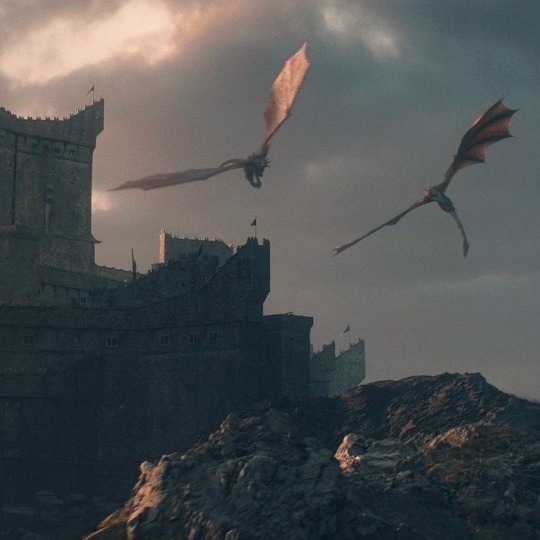

this concept is stuck in my brain so...
your were always in the shadow of your twin, jacaerys. he was born only ten minutes before you, but in doing so had outshined you for a lifetime.
while your grandfather might have bent the law further for you if you had been born first, he wouldn't do so for the rest of the realm - and being a girl, the birth of your immediately younger brother meant you wouldn't inherit driftmark, either.
that's not to say that you didn't love your brothers - they were your closest friends, especially after your mother had moved your family to dragonstone.
you missed your aunt helaena, however. at only two years your elder, she was more like a cousin or a sister to you, and as the only other girl you two had idled away long hours with tedious septas together.
for the first few months you wrote faithfully to eachother, but after the disaster at your aunt laena's funeral, an irrevocable schism has opened between factions of your family.
from that day, two more years would pass before you saw her again.
when helaena was thirteen, she came to dragonstone to claim a dragon. it was a cold and diplomatic trip which the king was too ill to attend and the queen had flatly refused to consider, and so the hand of the king escorted her along with a platoon of guards.
you were eleven years old, clasping hands with your twin on the windy shores of dragonstone as the princess' boat came ashore. all of you, even joffrey were ill at ease during this first meeting of factions in years. but, when the princess pulled back the hood of her cloak and stepped onto the beach, you found your heart hammering for an entirely different reason.
helaena had grown taller and more beautiful since you last saw her, though she seemed completely unaware of it as she anxiously took in her surroundings. she had all the beauty of the targaryen line in her, and the beginnings of what would make her a regal looking woman one day. and yet, she was softer in her features and appearance than the rest of your family in a way that was completely disarming.
though the feel of her visit was detatched and lacked the warmth of a family reunion, you found every excuse to seek her out over the duration of it. at first she was wary of you, no doubt because of your brothers and stepsisters and the role they had played in her brother's injury. after a few days though, she warmed and you slipped into a rapport like that before you had left for the island castle.
when it came time to venture up the dragonmont in search of a dragon, you begged and pleaded your mother to allow you to come with the princess - after all, your egg had never hatched and you lacked a dragon as well - and after exhausting the crown princess she relented.
on the dragonmont with a mixture of red keep guards and those loyal to rhaenyra, you and helaena camped on the mount for days, venturing to a different part of the mountain each day in search of dragons. at night, you shared a tent and kept eachother awake giggling and telling stories.
on the sixth day on the dragonmont, you met with the dragons dreamfyre and silverwing, who had belonged to two queens and sisters before you. after the pair of you successfully mounted the dragons and took to the skies, you returned to the beach of dragonstone with a renewed fire inside of each of you.
the night you returned to dragonstone's castle, a feast was held to jointly celebrate two dragons being claimed. you and helaena danced joyfully as the musicians played, and eventually you fell back to let your twin take your place. it was then you felt the first twist of jealousy in your stomach as jace made her laugh.
you snuck into the chamber helaena was staying in that night to recreate the little would you had when sharing a tent. that night, she had said to you before falling asleep, "you and i shall be bonded forever. dragon-bonded," she had said dreamily, then added, "soul-sworn."
before you could ask what she had meant by that, she was asleep.
#helaena targaryen#helaena targaryen x reader#helaena x reader#velaryon reader#strong reader#hotd#hotd x reader#house of the dragon
135 notes
·
View notes
Text
Crosshair's Innate Archetype (Part 2)
This is the sixth instalment of my Bad Batch analysis. This character analysis has two parts: innate archetypes and anima. I will be referring to “Gods in Everyman” by Jean Shinoda Bolen for this first part analysis. This innate archetype analysis is split into two parts.
Part 1 | Part 2

Apollo is the God of the Sun, and he is second only to Zeus as the most important Greek god. The Romans called him “Apollo” like the Greeks, or “Phoebus”, which means “bright, shining, pure”. He is also the god of the arts (especially of music, dance and poetry), prophecy and archery. He is the lawgiver and punisher of wrongs, the protector of herdsmen, and the patron of medicine, who can also bring plagues. He is often depicted with a bow and a lyre, and the laurel is his sacred plant. His two famous precepts, “Know thyself” and “Nothing in excess” are inscribed on his temple at Delphi. Although he is noted for clarity and form, he has a lesser-known darker aspect, with both light and dark reflected in his symbols. Apollo is known as the pure, holy and cleansing god, which are all associated with the sun, his most important symbol. Swans are Apollo’s sacred birds, but so do crows and ravens, which represent his dark side. Snakes and wolves are also associated with Apollo. As a punisher of wrongs, Apollo is known to be cruel and can act vindictively.
The Apollo archetype is the most common archetype found in real people and in fictional characters. The clones have a strong Apollo archetype due to their military training and genetic modifications that cause them to be more inclined in following orders. This archetype is further enhanced during Order 66 as the inhibitor chip causes the clones to carry out orders without question. Crosshair has an enhanced Apollo archetype due to his genetic modification that grants him enhanced eyesight.
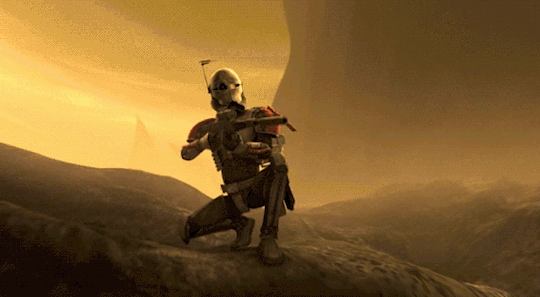
Apollo is an archer. His bow and arrow shafts are golden like the sun. It takes will, skill and practice to be an archer. An accomplished archer can aim for a distant target and be confident of hitting it, which comes naturally for people with strong Apollo archetype. People who identify as Apollo are logical and can easily relate to objective reality. They know what they want and have the will to accomplish their goal. They have a sense of future time, which enables them to plan ahead and set goals (like aiming at a target). Their targets are realistic, require effort to achieve it, and grant recognition. Crosshair is an accomplished sniper who is confident of hitting his targets from afar, even when the surroundings are a blur. In the Hyperspace Stories #10, Crosshair warns Wrecker that he can blast a flea off his back from 200 meters away in the pouring rain, and that he can do the same thing to Wrecker’s new toy. This indicates that Crosshair will do anything to accomplish his goals regardless of how difficult his goals are. Adding to his severe and unyielding personality, he has a very strong will to achieve his goals. Moreover, his goals are realistic for they are tangible and objective (for example, taking down a platoon of battle droids is a tangible goal). Like an archer, Crosshair has an excellent sense of future time, which enables him to plan out his trickshots perfectly as he knows where to place the reflecting mirrors and when to shoot to make those trickshots.

Apollo is the Greek god of prophecy, even though he himself does not prophesize. He gained this title by killing a great dragon or serpent named Python and taking over the oracle of Delphi as his temple, a site with a long history of prophetic divination. Through this myth, he was called Pythian Apollo and his priestess was Pythia. Apollo’s mediums were all women and their psychic divinations came from their communion with him. When people came to Apollo’s temple to consult with his oracle, the Pythia would enter a trance state and the priest would put questions to her and take down her words. The response would be turned over to another priest, who usually put it into the rhythm of poetry, though the meaning of the words was often obscure and ambiguous. Apollo as the god of prophecy fits his future-mindedness, like an archer who aims for a faraway target.

Crosshair has shown to exhibit some traits of Apollo as the god of prophecy, but it is usually limited to his ability to plan trickshots. He expertly places the reflecting mirrors on the surfaces as he has already predicted the movements of his targets. He also knows when to make the shot, which enables him to wipe out his targets with one precise shot. In “Return to Kamino”, Tech notices that Crosshair has placed the reflecting mirrors on the walls of the training ground. The placement of mirrors allows Crosshair to take down all four Imperial troopers in one shot, while leaving the Bad Batch unscathed. Crosshair only makes the trickshot when the Imperial troopers refuse to stand down. This indicates that he has foreseen that the Imperial troopers will disobey his order, and that he has planned their deaths. Moreover, the placement of mirrors also indicates that he has foreseen the positions of the Imperial troopers and the Bad Batch will take once they are in the training ground, and he ensures that his trickshot will take down all the Imperial troopers but not harm the Bad Batch.

@wwheeljack has shared this link that explains the observation training taken by military snipers. In this exercise, the snipers observe the various given objects for a short period of time. Then, they need to remember and describe what they have seen – they are not allowed to say the names of the objects. This exercise reminds me of how the oracle of Delphi is sought out by the Ancient Greeks, which evokes the Apollo archetype. It does feel that Crosshair’s enhanced eyesight and sniper training have enhanced his Apollo archetype.
As the goal-oriented archer and the god of the sun and prophecy, Apollo is the far-distant one. He can live in the future, always planning ahead. He can rise above the situation or “go skyward” to see everything objectively or to see his experiences as spiritual lessons. People who are like Apollo response to emotional pain by distancing themselves from these feelings and rise above their emotions through intellectual understanding, a mindful spiritual practice, or repeating their own principles to themselves. In the myths, Apollo had a connection to the mysterious realm of the Hyperboreans, and taking his chariot pulled by swans, he went there during the winter months. The realm of the Hyperboreans was the “northerly realm beyond the mountains”, and on a psychological level, this realm was depicted as a distant place of retreat, a starry world, another dimension, an Underworld or an enlightened world. Regardless of its depictions, the Hyperborean aspect of Apollo leads to feelings of isolation from others and the tendency to occasionally disappearing from this world into another.
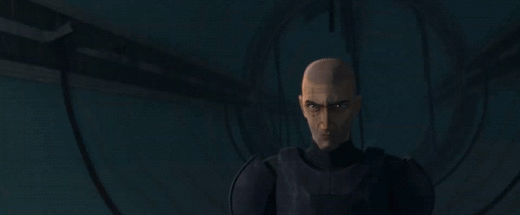
As the far-distant one, Crosshair has the tendency to see the bigger picture. Throughout season 1, Crosshair explains his reasonings why he joins the Empire willingly, and keeps accusing Hunter that he cannot see the bigger picture. Moreover, Crosshair prefers to stay above his emotions when chaos breaks out. For example, when the food fight breaks out between the Bad Batch and the regular clone troopers, Crosshair chooses to ignore the commotion and continue to eat until his meal gets ruined. Interestingly, his transfer to the snowy planet of Barton IV can be interpreted as his travels to the realm of the Hyperboreans, despite the realm is not necessarily located in the Arctic Region by the Ancient Greeks. Though, the need to keep his helmet on can be Crosshair’s Hyperborean aspect of Apollo.
As the god of the sun, nothing hides from Apollo, like light shines through the darkness to expose every hidden thing. The Apollo’s clear-sightedness enables a person to see through lies, ulterior motives and hidden information. In the myths, on the day Hermes was born, he proceeded to steal cows from his half-brother Apollo. He hid his tracks by tying branches to his feet, and he laid down a false trail by having the cows walk backwards. When Apollo discovered his cattle were stolen, he noticed tracks that seemed to lead in the opposite direction, and he was not fooled. When Apollo demanded Hermes to reveal where his stolen cows were hidden, Hermes lied and tried to pass himself off as an innocent infant, in which Apollo did not buy into any of his lies. Helios, the god who personifies the sun in Greek mythology and who shares the same title as God of the Sun with Apollo, also exhibits the same clear-sightedness. In the myths, Helios was the one who tells Demeter that her daughter Persephone had been abducted by Hades, and Zeus had permitted it to happen. Helios was also the one who told Hephaestus that his wife Aphrodite had been cheating on him with Ares.

We have seen how Crosshair can easily see through lies and anything hidden from plain sight. In “A Distant Echo”, Crosshair quickly figures out why Rex strongly believes that Echo is alive and is adamant of rescuing him because Rex feels guilty for leaving Echo for dead at the Citadel. His deductions are based on his observations of Rex’s body language and changes to his voice tone. In “On the Wings of Keeradaks”, Crosshair uses his helmet scanner to see through the walls, and reports that their enemies and many droids are approaching them. In “Aftermath”, Crosshair is not convinced that Hunter has stunned Caleb, which caused the Padawan to fall to his death in the waterfall. He even inspects the surroundings and the bottom of the waterfall using his helmet scanner to confirm his suspicions. Then, he points out that Hunter should look down not across when he sees someone falls, showing his understanding of body language and how observant he is. In “Reunion”, an Elite Squad Trooper reported that he cannot detect any life signs aboard the Jedi cruiser because the scanner is not working due to atmospheric interferences. However, Crosshair immediately knows that Tech has jammed their sensors and that Clone Force 99 is still onboard the ship. He also manages to predict that Tech has tapped into their comms to track down their movements. In “Return to Kamino”, Crosshair immediately catches on Wrecker’s lie that they did not bring Omega with them. We know that our pupils dilate when we lie, and I am sure that Crosshair can see that even when we wear sunglasses or helmets with dark visor. I am also sure that Crosshair would never be impressed by magic tricks since they involve misdirection, deception and illusions. He is so observant that he can easily debunk the magic tricks. If you are hiding something, both Hunter and Crosshair will catch on quickly but with different methods – Hunter can sense it while Crosshair can observe it.


Crosshair’s Apollo archetype balances out his Poseidon archetype. When Crosshair unleashes his emotions, they are depicted as storms. The sun only comes out when the storms subside, indicating that he has finally calmed down and he now can see the truth. This motif is shown twice, which are in “Kamino Lost” and “The Outpost”. In “Kamino Lost”, the raging storm on Kamino has subsided by the time the Bad Batch reaches the landing platform at daybreak. The sun comes out, which is a rare occurrence in Kamino. At this moment, Crosshair’s anger, disappointment and sadness towards his teammates have returned to stable conditions after all the explosive arguments they have. When Hunter offers him a chance to rejoin the team, Crosshair turns it down because he sees through Hunter’s intentions. Hunter wants Crosshair to give up his life as a soldier and his allegiance with the Empire, which makes his offer conditional. This contradicts Hunter’s unconditional love towards his teammates (including Crosshair), and if Crosshair chooses to rejoin the team, it will mean that he chooses to sacrifice his values and live in the lie that everyone is fine with him (which is clearly not true because Tech, Wrecker and Echo aim their blasters at Crosshair, thinking that he is going to shoot Hunter). Crosshair can see through this inconsistency and he refuses to return.

In “The Outpost”, Crosshair and the injured Mayday endure the freezing conditions as they return to the Imperial base. Once they arrive there, the snow has stopped falling and the winds have ceased. The sun is hanging above the base as Crosshair begs Lieutenant Nolan to send a medic to save Mayday’s life. Nolan refuses, claiming that it will be a waste of the Empire’s resources. As Mayday succumbs to his injuries, Crosshair finally sees the truth – the Empire never cares about the clones because they are expendable, including him. The sun shining above Crosshair symbolizes his light side as the Empire’s cruelty towards the clones has been exposed in broad daylight. The Ice Vulture circling above Crosshair represents his dark side as Crosshair makes the decision to kill Lieutenant Nolan. The mountains behind Crosshair are positioned to look like the wings of the Ice Vulture – as if Crosshair has become the Ice Vulture. I interpret the Ice Vulture as the equivalent of the raven, Apollo’s sacred bird that represents his dark side. In the Greek myth, the raven was once white, and Apollo assigned it to keep an eye on his mortal wife Coronis, who was pregnant with his child. The bird reported to the god that she was cheating on him. Apollo responded by turning the raven’s feathers from white to black, and he killed Coronis, which he later regretted it. However, he managed to save his unborn son from her body, and gave him to Chiron the centaur to raise. This son was Asclepius, who became the god of healing and medicine. Surprisingly, Apollo’s sacred birds – swans, crows and ravens – are known for their loyalty, and the same goes for vultures. These birds fit Crosshair well as loyalty is important to him.

Apollo is the favourite son of Zeus, and he is the second most important Greek god (the first being Zeus). From his birth, Apollo proclaims that his life mission is to carry out his father’s will. As the favourite son, Apollo people are likely to be basked in parental love, approval and praises, especially from traditional parents, as if there is a brightness cast about them. They are the success in the making, a positive reflection on their parents, and an achiever in a culture that values accomplishments. If they do not have a biological father, they will seek out the approval of other people who resemble Zeus. Crosshair has this archetypal affinity to excel and to please, and he constantly seeks out approval from Hunter, who has the Zeus archetype. This is hinted in “The Bad Batch” when Crosshair smirks as Hunter praises his sharpshooting skills. Crosshair also looks up to Commander Cody and Commander Mayday, who both have higher authority than him.

When Anakin (who has the higher authority as he is a Jedi General) leads the Bad Batch and Rex to rescue Echo, Crosshair is seen following and aiding him. In “A Distant Echo”, Anakin is seen checking out Crosshair’s rifle, and Crosshair is fine with it (possibly even feeling proud that he is being noticed by a Jedi General). When Anakin is snatched away by a keeradak, Crosshair shoots a grappling line towards the flying reptile so Hunter can use it to track down Anakin. When the Bad Batch and Rex find Anakin has been pinned down by the creature and is surrounded by the Poletecs, Hunter commands Wrecker and Crosshair to carry out Plan “Rockslide”. Wrecker proceeds to push a boulder down to distract the Poletecs while Crosshair shoots an electric dart at the leg of the keeradak, forcing it to release Anakin. When Anakin tells them to split up so they can find Echo easier, Crosshair follows Anakin and saves him from almost being cornered by battle droids. Crosshair is also seen fighting alongside Anakin and Echo in the episode “On the Wings of Keeradaks”. In “Unfinished Business”, although Crosshair tells the rest of the Bad Batch and Rex to go as he helps them to buy some time, they stay back to see him performing impressive trickshots. I am sure that by staying back to watch his performance boosts Crosshair’s ego because he loves showing off and all eyes are on him. Crosshair is probably more determined to impress Anakin when he is present to witness his impressive trickshot where he destroys a group of battle droids with only one shot. Some fans jokingly say that Crosshair is disappointed that he does not receive praises from Anakin after that trickshot, so he feels the need to bring down Wrecker by jumping in to say that “he won’t top him next time”.
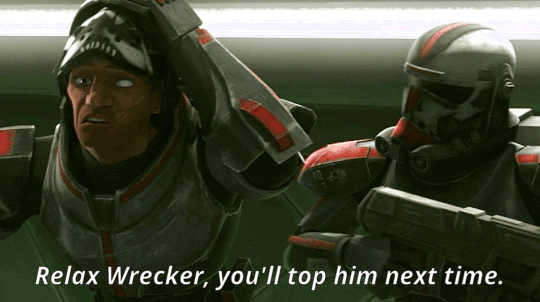
Apollo is the lawgiver as he provides cities their legal institutions and a structure for communities to work together and settle disputes. He also interprets law, and he supports order and moderation. He is uncomfortable with chaos, turbulence or passionate intensity. He intends to bring form and provide order through rules, laws, measure and time. As the upholders of law and order, Apollo people have a strong conviction that they know what is right and good for everyone. They may be idealists who envision a time when all people may live peacefully under the rule of law that will guarantee justice and fairness. All clones have the Apollo archetype as they follow orders without much questioning. Although the Bad Batch has a tendency to deviate from standard protocol, they still mostly follow orders. When Order 66 is issued, the inhibitor chips enhance the Apollo archetype to the point that the clones mercilessly execute their Jedi Generals that they have been working together for years.
Crosshair takes on the law-and-order aspect of Apollo strongly, even taking the saying “good soldiers follow orders” seriously. In “Aftermath”, Crosshair is somehow affected by the inhibitor chip, and tries to shoot Caleb Dume down despite Hunter keeps telling him to stand down. Crosshair later gets angry at Hunter for helping Caleb to escape and lying that the Padawan has been eliminated. To him, an order is an order, and Hunter should have completed the mission objective without considering the morality of the given order. When the Bad Batch refuses to execute Saw Gerrera and his people, Crosshair grumbles about the need to debate about morality, and states that they need to complete the mission. He believes that Saw Gerrera and his people are enemies of the Empire, and they should be eliminated. He even blames Hunter for making the team disobey orders, which causes them to be branded as traitors to the Empire.

With the effects of his inhibitor chip get amplified, Crosshair leaves the Bad Batch and joins the Empire. He carries out orders without hesitation. In “Replacements”, Crosshair orders his Elite Squad to execute the civilians associated with Saw Gerrera, and he even executes one of the members of his Elite Squad for refusing to obey his order. In “Devil’s Deal”, he follows Rampart’s order and shoots one of Senator Taa’s lekku, which allows Rampart to arrest General Cham Syndulla, his wife and other insurgents for the attempted assassination of the Senator. In “The Solitary Clone”, he carries out Governor Grotton’s order to execute Tawni Ames when Commander Cody fails to do so. In “Return to Kamino”, Crosshair reveals that he already has his inhibitor chip removed, and that he willingly pledges his loyalty to the Empire. This shocks the Bad Batch and Hunter refuses to believe it, but Crosshair says that this is who he is. It is not out of character for Crosshair to stay loyal with the Empire even without the effects of the inhibitor chip because of his strong Apollo archetype. He even chooses to return to the Empire despite he is left on the Kaminoan platform for 32 rotations because he is a soldier of the Empire. When Commander Cody talks about the rumour that more Clone Troopers have been questioning Order 66, which explains the increasing number of their desertion, Crosshair describes them as traitors like the Jedi.

Moreover, Crosshair is shown to have a strong conviction of what he thinks it is right and good for himself, the Bad Batch and Omega. In “Aftermath”, he strongly believes that the Bad Batch should have obeyed orders like good soldiers because he does not want the team to get into trouble with the higher-ups. In “Return to Kamino”, He believes that he and the rest of the Bad Batch are meant to be soldiers as this is their purpose. This is why he tells them to stop running and join the Empire because the Empire cannot protect the galaxy without strength, and he hopes to be a part of it. In addition, he tries to take Omega away from the Bad Batch and intends to send her on a shuttle offworld. He claims that this is for her own good and theirs as well. He tells Hunter that Omega is in constant danger from living among fugitives like the Bad Batch (which he has a valid point there), and that Hunter should let her go to protect her.
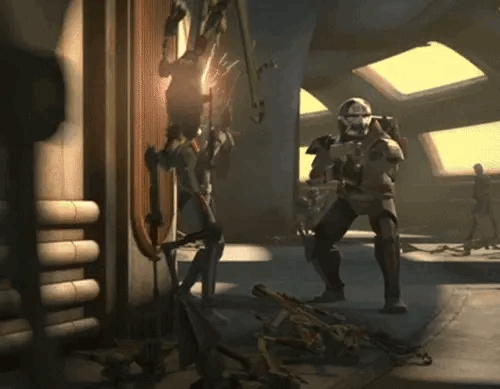


In Greek mythology, Apollo is known to have sibling rivalry and friendship with his younger half-brother Hermes, the Messenger God, and with his older twin sister, Artemis, Goddess of the Hunt and Moon. Competition emerged between Apollo and Hermes when Hermes stole Apollo’s cattle, and from whom Apollo received the lyre. Shortly after Artemis was born, she helped her mother Leto during her prolonged labour with Apollo. There was one myth where Apollo and Artemis were called upon by their mother Leto to avenge Niobe’s insult. In a myth about Artemis and Orion, Apollo was jealous of her love towards the hunter, so he created a challenge for Artemis, causing her to unknowingly kill Orion. As an archetype of the sibling and favoured older brother, Apollo people can easily become part of a team effort. They are also competitors, and they do it well thanks to their emotional distance. Though, they may not win the top position because they appear cautious and do not inspire others to see them as leaders. They also lack the drive to amass either power or money, the vision, decisiveness, or ruthlessness of a Zeus archetype. Crosshair has a brotherly relationship with members of Clone Force 99, and he works well with them. In the episodes “On the Wings of Keeradaks” and “Unfinished Business”, he and Wrecker have a sibling rivalry where they compete each other on who can take down the most droids. Though, Crosshair does not work well with regular clone troopers with the exceptions of Commander Cody, Commander Mayday and Captain Rex (at the later part of the Clone Wars arc).
Apollo values prudence, avoids physical danger, is emotionally distant, and prefers being an observer. This makes him a side-liner, not a hero. During the Trojan War, Poseidon challenged Apollo to a duel. Apollo turned it down and explained that he was not going to fight for insignificant, short-lived mortals. He still refused to be drawn into combat even when his sister Artemis called him a coward (and somehow Hera gave her a beating for that). Furthermore, Apollo was shown to actively dislike heroes. He refused the help from Heracles through the Pythian Oracle. He also opposed Achilles during the Trojan War. Achilles died when he was struck in the heel by an arrow, which was a vulnerable spot as that had not been bathed in the river Styx. In some versions, it was Apollo who killed Achilles, but in other versions, he was the one who guided Paris to take the shot. Apollo’s action is not a heroic act – he shoots an arrow from a distance instead of getting involved in direct combat.
Crosshair is shown to have traits of the non-hero. As stated in “Star Wars: The Clone Wars: Character Encyclopedia - Join the Battle!” book, Crosshair can be cynical and bitter about the war. He is not like Wrecker, who enjoys the thrill of being on the battlefield and engaging physical combat like a hero. He is a sniper who carefully takes down his targets from afar and without revealing his position. Although he carries out his duty as a soldier seriously, he does not like being in the battlefield. The book also states that Crosshair has little regard for regular clone troopers because he views them as expendables. This aligns with Crosshair telling Captain Rex that he would have left Echo for dead because he is “just another reg”.
Apollo is the archetype of the musician. The bow and the lyre are the two stringed instruments belonging to Apollo. He uses the bow to release arrows, while he plucks the lyre to bring forth music. As the most alert Greek god, he produces music that leads people to a clearly seen truth. Apollonian music expresses clarity and purity that bring harmony and lift spirits up. Moderation and beauty are the essence and the effect of his music, which helps to charm beasts and soothe the tormented mind. Aside from music, dance and poetry are also associated with Apollo. Apollonian art is associated with order, reason, harmony, clarity and structure, which is the opposite of Dionysian art (from Dionysus the god of wine and ecstasy), which is associated with chaos, ecstasy, turbulence, emotional conflicts and passion.
I have seen headcanons of Crosshair being a musical expert – he can sing well, he can write songs, and he can play musical instruments (like the piano and bass guitar). He is likely into classical music and ambient music. He also likes songs with poetic lyrics. There are also headcanons that Crosshair is into other music genres like rock, blues, alternative, rap, and heavy metal. I accept these headcanons because Apollonian and Dionysian are the opposites of the same coin. It will be in character for Crosshair to be drawn to chaos, irrationality, intense emotions and passion. In this YouTube video between 17:00 to 19:00, Dee Bradley Baker, who voices the Bad Batch, comes up with the idea of Crosshair singing “The Time Warp” from “The Rocky Horror Picture Show” (someone even made a short animatic about it in this link). The song talks about madness, chaos, sexual freedom, sensations, and being in the present, which are Dionysian values. Crosshair may be drawn to these opposite values. Aside from music, there are headcanons that Crosshair is a great dancer (mostly ballet), he writes poetry (perhaps to express his cynicism and bitterness towards the war), and he is into calligraphy, literature and aesthetic art, which align with Apollonian values.
People like Apollo tend to live in their heads, rather than in their bodies, emotions or imagination. Hence, Apollo men are not lovers. Their single-minded focus means that they are not easily distracted by attractive partners. Their relationships with women usually lack passion and emotional depth, which lead to both parties having a brother-sister relationship instead. With this arrangement, Apollo men tend to work best with Artemis and/or Athena women because these women are independent, competent and competitive, just like Apollo men. Though, Apollo men can be attracted to their opposites, which is shown in the myths where Apollo is in love with Sybil and Cassandra, who are psychic women – emotional, irrational, impractical and often unimpressed with him. Most Apollo men find these women fascinating, frustrating and unpredictable, and they may try to control them.
Although Apollo is handsome, virtuous and dependable, he is unsuccessful in love as he is rejected by Daphne, Cassandra, Sybil and Marpessa. Even his love for Hyacinth ends in tragedy when he accidentally kills Hyacinth in a discus-throwing contest. Jean Shinoda Bolen interpreted the women Apollo desires but gets rejected by them as the same women who also may reject Apollo men. These women reject Apollo because he lacks depth and intensity, emotional closeness and expressiveness, or sexual spontaneity. Some women reject an Apollo man because they sense that he is too attached to appearances.
Marpessa was loved by Apollo and a mortal man named Idas. Zeus allowed her to choose her lover between the two. Marpessa wisely chose Idas because she was aware that Apollo would desert her when she became old and grey. This myth can serve as a metaphor of choosing a “human” relationship that has the potential to grow and change over time, rather than a relationship with the unchanging Apollo.
When it comes to his relationships with Sybil and Cassandra, Apollo mistakenly assumes that love can be given in exchange for what he can provide. Apollo granted Sybil the gift of prophecy (which was how the famous Sybilline oracles came about) but she rejected him. Apollo taught Cassandra the art of prophecy on the condition that she became his lover, but she did not keep her word. Apollo got his revenge by cursing her that nobody would believe her. With the onset of the Trojan War, Cassandra continuously tried to warn everyone about the future calamities but she was shut away as a mad woman.
Although an Apollo man is cut away from his instinctual, sexual, and sensual thoughts, these thoughts may arise occasionally. His ability to focus on goals combining with his sexual desire may cause him to pursue the person he loves with great enthusiasm and passion. This is similar to the myth where Apollo was struck by an arrow shot by Eros (also known as Amor or Cupid), causing him to fall in love with Daphne and he actively pursued her. If the woman has not fallen in love with him, like Daphne in this myth, she is unlikely to relate to the intensity of his feelings due to the lack of intimacy and communication in the early stages of the relationship. She may feel like a pursued Daphne and may flee from him, as she feels more like an object he wants to possess than a woman being wooed. The myth of Apollo and Daphne ended with Daphne turning into a laurel tree to escape from the god overtaking her. Apollo still loved her, and the laurel became his sacred tree, with her leaves being made into wreaths that adorned his hair.
Even if an Apollo man manages to win a woman’s heart, she may become disappointed at him with his tendency to “go away” as a lover. She may even be unfaithful in his “absence” like the myth of Apollo and Coronis as stated earlier. If a woman desires substance rather than form, needs emotional depth rather than the security of an enduring relationship, or her nature is passionate, intense and in the moment (like Aphrodite the Goddess of Love and Beauty), she will be unhappy with her relationship with an Apollo man. This is because an Apollo man often does not see the importance of sexual attraction, physical affection and intimate verbal communication. When facing relationship difficulties, the Apollo man often withdraws as he does not see them as his problems. He can stay comfortably in a relationship or a marriage marked by emotional distance and lack of passion. His partner may feel lonely because of his lack of emotional and communication depth. She may become more like Apollo and start to cut herself off from her emotions, or she may become more irrational or hysterical in an unsuccessful attempt to get him to react emotionally.
Fortunately, Crosshair has the Poseidon archetype to balance out his Apollo archetype. This means that he is “handsome, virtuous and dependable” like Apollo, while also capable of depth and intensity, emotional closeness and expressiveness, intimacy, and sexual spontaneity like Poseidon. This archetype combination may make him an ideal partner, but with Poseidon’s relentless passion combining Apollo’s single-mindedness, he risks mirroring the myth of Apollo and Daphne if his desired partner does not reciprocate his feelings. Moreover, there is a tendency that he may occasionally sway too far into one archetype if he is unbalanced. This is because Apollo and Poseidon are the opposites – Apollo is associated with emotional distance, while Poseidon is associated with overwhelming emotions. If Crosshair chooses to distance himself emotionally, he may go too far to the point of inadvertently pushing people away and becoming lonely. However, if he chooses to give into his intense emotions, he may carry out his actions too far and inadvertently hurt other people, which can cause them to become terrified of him. Hence, it is important for Crosshair to find his centre or “Self” so he can take on the best aspects of both archetypes while reducing the risk of being “taken over” by either of them. This is possible if his “Self” is strong, which is associated with Hestia, the main archetype of Echo.
Since Apollo is “above it all” due to being the sun god, he is emotionally distant. This causes him to communicate about his emotions indirectly. When people seek his advice about something that he does not clearly understand, Apollo speaks through the Delphic Oracle, which contains ambiguous messages that require interpretation. People around an Apollo person often have to interpret the cryptic words that hint at their feelings. The Apollo person will withdraw further if they get the meaning wrong or if they try to draw them out. It is ironic that Apollo, the god of clarity who can make a person speak so precisely and clearly about an impersonal subject, is unable to make a person express themselves clearly. Furthermore, Apollo’s emotional distance also means the tendency to avoid emotional conflict, like the god refusing to respond to Poseidon’s challenge to fight during the Trojan War. He prefers to assess or judge the situation or the person from a distance. He is unwilling to “get close up” – be vulnerable and empathic – in order to truly know someone else.

It is clear that Crosshair struggles to express himself and his emotions through words – he prefers to express it through action. In “The Bad Batch”, Jesse gets angry at Crosshair because he interprets his words as insulting the regular clone troopers and disrespecting Captain Rex. In “A Distant Echo”, Rex interprets Crosshair’s words as he does not care about Echo, which causes him to angrily punch Crosshair. In these occasions, Hunter does not call out Crosshair or intervene when Rex punches Crosshair, possibly because he knows that Crosshair does not mean it. In “Aftermath”, Crosshair’s inhibitor chip is somehow activated, which causes him to become adamant about following orders. Crosshair does not understand what is wrong with himself, and his inability to properly communicate his issues with his teammates only worsens with the effects of the inhibitor chip. To make matters worse, Hunter, Tech, Wrecker and Echo do not understand what is wrong with Crosshair. They are confused of his behavioural change since they never have an issue with disobeying orders as they do it all the time. In addition, they are more focused on trying to escape the makeshift prison then dealing with Crosshair’s antics. Crosshair feels frustrated that they do not understand him and he withdraws from the team. He withdraws further when Omega tries to draw him out. In “Return to Kamino”, Crosshair offers the Bad Batch to join the Empire so they can have a purpose again. Hunter counters that Crosshair does not get who they are. Crosshair feels hurt that they do not understand his intentions and feelings towards them, and warns them not to make the same mistake twice and become his enemy. Hunter tells him that they never are enemies. Throughout “Kamino Lost”, Crosshair keeps on explaining why he chooses to join the Empire willingly, but the Bad Batch does not get him and they struggle to accept that he does this without the influence of the inhibitor chip. This causes Crosshair to withdraw himself further to the point of refusing to rejoin the Bad Batch.
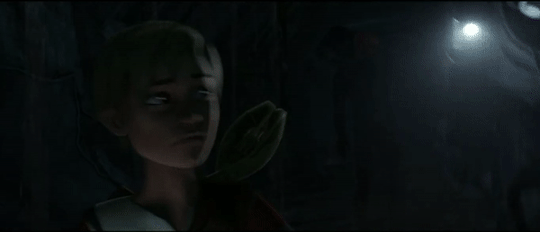
People who identify as Apollo are influenced by their innate characteristics, culture and family of origin. If their family discourages emotional expression and perception, as well as enforcing a culture that disapproves vulnerability, encourages competition, and rewards acquiring power, the Apollo person, especially if they are intelligent and good-looking, may become narcissistic. This negative aspect may be worsened if they have narcissistic parents. These parents are likely to make the Apollo child to become an extension of themselves. They feel better about themselves when their Apollo child “wins” and demand that their child reflects well on them. This child feels the need to win in order to retain the conditional love of their parents, which can lead to anxiety and they end up performing worse.
An Apollo person whose life is full of successes may become arrogant. Their sense of self may become inflated, as if they identify with the god or the archetype. They may forget that they are human, and may assume that they can take on much more that they are able. This can lead to disastrous results, just like what happens to Phaëthon, the son of Helios. In this myth, Phaëthon was told by his mother that he was the son of Helios, and the young man boosted about it. When he was not believed in, he set forth to find Helios to confirm the truth. Helios acknowledged his paternity, and to assure Phaëthon further, he promised to grant him any favour he wished. Phaëthon requested to drive the sun chariot across the sky for one day. At daybreak, Phaëthon put on his father’s sun crown and climbed into the chariot. The great horses of the sun felt his unfamiliar and inexperienced hand on the reins and left the usual path taken by the sun. Phaëthon lacked the strength or experience to check their flight, and the blazing heat of the sun scorched the earth. To save the earth from further damage, Zeus struck Phaëthon down with a lightning bolt. Helios, distraught over the loss of his son, allowed the earth to go without light for one whole day, before once more putting the sun chariot on its regular course. Jean Shinoda Bolen interprets Phaëthon’s assumption that he could drive Apollo’s chariot as “an ego trip” that hurts others and causes him to be struck down.
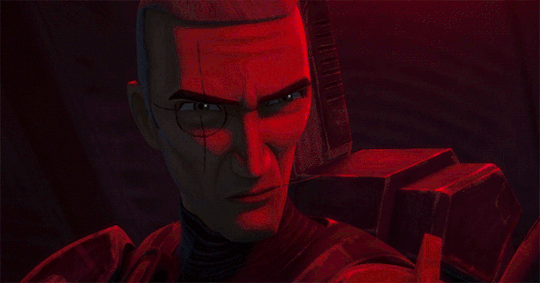
The Bad Batch consists of Hunter, Tech, Wrecker and Crosshair, who are all enhanced clones. Crosshair views himself and his squad as more superior than the regular clone troopers or ‘regs’. In “The Bad Batch”, Crosshair sneers at Jesse and tells him that they usually do not work with regs. In “A Distant Echo”, Crosshair says that he would have left Echo for dead too because he is “just a reg” (though his actions say otherwise). In “Return to Kamino”, Hunter realizes that Tipoca City is being decommissioned, which is not a good sign because he has been informed that the Empire is phasing out clones next. Crosshair is unconcerned of it because he thinks that his loyalty to the Empire, his exceptional sharpshooting skills and his superiority will mean that he gets to keep his position. Moreover, he tries to convince the Bad Batch to join the Empire as they are superior to the “regulars” and their strength can help the Empire to protect the galaxy. When the Bad Batch refuses his offer, he tells them that Kamino, the regular clones, and the Galactic Republic's time are over. He claims that the Empire will control the entire galaxy and he hopes to be a part of it. Crosshair’s assumption that he would be important to the Empire is his “ego trip” which hurts the Bad Batch, and it eventually causes him to be “struck down” when he realizes that he is disposable in the eyes of the Empire in spite of his skills, abilities and loyalty.
Apollo is known to be cruel and punitive, especially when he has been humiliated and dominated by someone else. He does not show mercy when he defeats a rival or when he enacts his revenge. In one myth, Marsyas the Satyr challenged Apollo to a musical contest, with the agreement that the victor could do whatever he liked to the loser. There were many variations of the contest, but the most notable one was that Apollo won the contest because he could play the lyre upside down, but Marsyas could not do it with his flute. As punishment for his hubris to challenge a deity, Apollo had Marsyas tied to a tree and stripped his skin off alive, which is inhumane and cruel. In another myth, after Cassandra did not keep her word, Apollo allowed her to keep the gift of prophecy, but he proclaimed that nobody would believe in her. This punishment is both creative and cruel as Cassandra suffers both for knowing the horrible future and living through it.

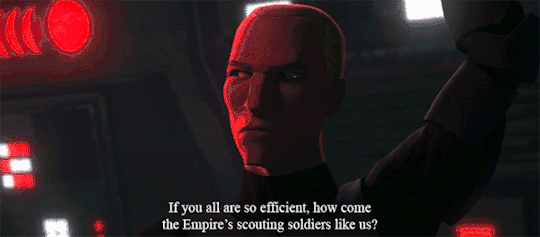
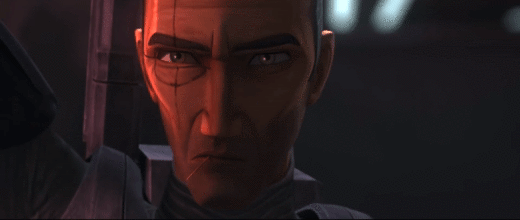
Crosshair has been shown to be capable of cruelty, especially towards those who disobeys his orders. In “Replacements”, ES-01 questions Crosshair’s leadership and the efficiency of the clones. He also tells Crosshair that the Empire is currently hiring human recruits, which means Crosshair may soon be replaced. This must have been humiliating to Crosshair, and with his emotional intensity, he is not going to let it slide so easily. When Crosshair decides to execute the civilians in compliance with the order to wipe out Saw Gerrera’s camp, ES-01 refuses to comply because he feels that the order is wrong. He takes over leadership as he tells the squad to ignore Crosshair and they should bring the civilians in for questioning. Crosshair coldly reminds ES-01 that the reason he is put in charge is because he is willing to do whatever it needs to be done. Crosshair then shoots ES-01 in the chest and in front of the squad as a punishment of his insubordination. Although not as cruel as Apollo flaying Marsyas alive, it is enough to cause the rest of the squad to obey his command and execute the civilians.
In “Reunion”, Crosshair hunts down the Bad Batch for being traitors to the Empire. He and his troops surround them at the end of the ion engine chamber, and he orders one of his troops to activate the engine. His plan is to trap the Bad Batch within the ion engine and force them to surrender as to avoid being burned by the engine flare. However, the Bad Batch manages to outsmart Crosshair and escape from being incinerated, while Crosshair gets burned by the ion engine. In “Return to Kamino”, when the Elite Squad Troopers reject Crosshair’s order to stand down, he makes a creative trickshot to execute all four of them at once.
Although Apollo is known for his clarity, moderation and healing abilities, the Ancient Greeks also believed that his poisoned arrows brought pestilence and sudden deaths to mortals. Jean Shinoda Bolen interpreted these poisoned arrows as “venomous words” uttered by an Apollo person. When a moderate, rational Apollo person unleashes his fury, he unleashes his repressed emotions that are primitive, undeveloped and irrational. The Apollo person becomes a venomous snake that harms others with words. His hostile words are often directed towards his loved or respected ones who have hurt him, humiliated him, or did not live up to his expectations. Though, his own positive self is the major casualty. Dee Bradley Baker describes Crosshair’s voice as “a coiled snake”, and his words are “deliberate and ready to strike” – resembling the dark aspects of Apollo. We have seen how his venomous words have wounded many people around him. In “The Bad Batch”, Crosshair’s words have incited Jesse’s anger, which causes a conflict between the regular clone troopers and the Bad Batch to break out. In “A Distant Echo”, Rex is wounded by Crosshair’s words and he punches the sniper in a fit of rage.
Throughout Season 1, Crosshair accuses Hunter’s failed leadership as the reason the squad is in trouble, which causes Hunter to start questioning his leadership skills, and he blames himself for leaving Crosshair behind. In “Kamino Lost”, Wrecker is hurt by Crosshair’s mocking his intelligence, and he points out that Crosshair never once tried to reunite with his teammates by his own volition, and that they would have accepted him back. In the same episode, Omega tells Crosshair that she wants to believe that the inhibitor chip has made him like this but she is wrong, indicating that she is hurt by his claim that he already has the chip removed and he willingly joins the Empire.
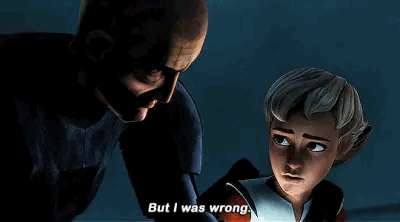
Since an Apollo person tends to live in their heads and uphold their values, they are often ruled by an idea of what it should be. They care greatly about their appearances, and they want order to their own worlds. They are unlikely to make choices based on their heart, emotions and instincts because these are devalued within them. As a result, an Apollo person can remain in a boring and meaningless job, an empty marriage, or a study course they are not interested in, despite knowing that something better exists out there. With their tendency to emotionally distance themselves, they are able to appear unaffected by the loss.
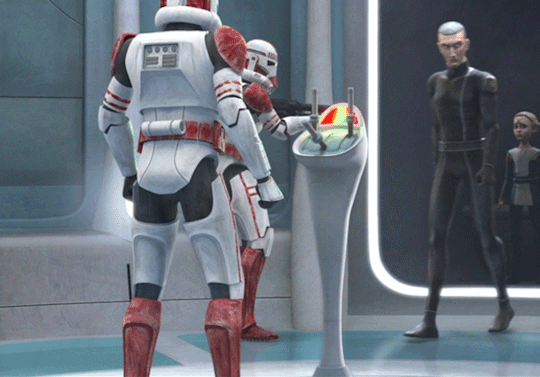
Crosshair is a sniper, which means he only takes the shot when he is absolutely certain that he can hit his target. Any slight miscalculation will give away his position and possibly compromise the mission. With that, I can see that Crosshair is a risk-averse person. This is evident when Omega suddenly shoots the rifle out of Crosshair’s hand, taking him by surprise. When she starts spraying several blaster bolts in his direction, Crosshair chooses to retreat as he cannot predict her movements, let alone predicting that she can use a blaster well.
We know that Crosshair is proud of being part of Clone Force 99 for they are known for their 100 percent success rate. This makes Crosshair believe that they deserve challenging missions as seen in the Hyperspace Stories #10 when he initially complains that the mission to investigate battle droids can be done by regular clone troopers. Being part of Clone Force 99 also means that Crosshair sees himself and his teammates as the more superior one. In “The Bad Batch”, when Rex takes charge of the mission to the Cyber Center, Crosshair challenges his authority because Clone Force 99 has been called in to help Rex, which means they (or more specifically, Hunter) should be in charge, not Rex.
With the rise of the Empire, the Bad Batch decides to defect because they do not agree with the Empire’s orders. They become mercenaries while also taking care of Omega. On the other hand, Crosshair doubles down on what he is made for and what he is always good at – as a soldier. He believes that the Bad Batch is made to be superior soldiers, and that the Empire will benefit from their skills and abilities. In “Return to Kamino”, Crosshair offers the Bad Batch to stop running and join the Empire to have a purpose again. To him, being a soldier is all that matters, and it does not matter that his allegiance is to the Republic or to the Empire. He is angry that Hunter chooses to throw away the squad’s legacy and defect. He feels that Hunter has brought chaos to his ideal world and has tarnished the squad’s reputation. He even tells Hunter to let Omega go and stop pretending to be something that he is not – a father figure to Omega. He also looks down at Omega because she is a child, despite that she has proven many times that she is a helpful ally, and she even saves him from drowning.

Even if Crosshair knows that the Empire is bad news, he is unwilling to break away from his values and his ideal world. He tries to justify the Empire’s action of destroying Tipoca City, saying that the Clone Wars is over and now the Empire will expand their control across the galaxy. Although he is left stranded on Kamino for 32 rotations, he still chooses to return because he is a soldier of the Empire. Since Crosshair cannot see what lies ahead if he chooses to give up being a soldier, he is unwilling to take the risk and run away. He stays with the Empire because they can bring structure and stability to his life, like providing him food, weapons, clothing, shelter and payment. He even scoffs at the thought of being more than a soldier as he sneers at the Bad Batch for scavenging like rats in “Reunion”. He also calls the clones that are questioning the Empire’s orders as traitors like the Jedi in “The Solitary Clone”. His tendency to live in his head and his decision to choose order above all else have made him physically and emotionally distant from everyone. The more detached he becomes, the lonelier he gets, which is shown throughout Season 2.
It is necessary for an Apollo person to grow beyond their rational and logical mind, and be in touch with their heart and body. Jean Shinoda Bolen has proposed four methods to grow beyond the Apollo archetype. The first method is to make room for Dionysus in the psyche. Apollo shared his temple at Delphi with Dionysus. Inside the temple, there was a grave of Dionysus, and the cult of Dionysus celebrated his death as an adult god and his reincarnation as a new-born infant. During the three winter months, Dionysus was worshipped and celebrated there, while Apollo went away to the realm of the Hyperboreans. Jean Shinoda Bolen interprets it as the Apollo person must realize the need to live in the moment, and to be absorbed in sensation, feeling, inner imagery, or outer experience, which will allow Dionysus to be present.
Many Apollo people can gain access to the Dionysus archetype through Dionysian music and dance. Dionysian music and dance are perceived as a bodily experience that invites people to dance spontaneously and without self-consciousness. They respond to the music instinctively, letting their bodies move with the flow of the music. In romance, Apollo people are goal-oriented and technique minded. They tend to stay aware of the clock and they may be self-conscious in how they express their love. By allowing Dionysus to take over the romantic aspects, the person becomes more focused in the present and becomes less conscious of their sensuality and methods of expressing love. The relationship will feel like a soulful communion or an emotional merger. I have seen fans describing Crosshair being critical of his appearance and becoming anxious in pleasuring his partner, and I think these are true to his Apollo character. With that, he must learn to let Dionysus in his romantic life, and this can be done with encouragements from his partner.

Hunter is innately Dionysus while Crosshair is more like Apollo. They are the opposites and they balance each other out. When Hunter focuses too much on his body or other people, Crosshair likely helps to shift his focus. For example, in “Aftermath”, Crosshair wants Hunter to focus on the mission and stop being bothered by Omega. It is possible when Crosshair stays in his head for too long, Hunter encourages him to let go and live in the moment. I have mentioned that Dee Bradley Baker once proposed the idea of Crosshair singing “The Time Warp”, which evokes the Dionysus archetype. Dee Bradley Baker once joked that Crosshair would be the one that sits in the back of the classroom eating a bottle of glue (link here), which also evokes the Dionysus archetype. This means that it is possible for Crosshair to move his Apollo archetype aside for the Dionysus archetype.
One of Apollo’s principles is “Keep the woman under rule”, and Jean Shinoda Bolen interprets as an Apollo man’s tendency to suppress his anima, the unconscious feminine of a man. Carl Jung views the anima or inner woman as the realm of emotions and relatedness, which is linked to the man’s emotionality and capacity for closeness and receptivity, which is usually undeveloped. With that, the second method to grow beyond the Apollo archetype will require one to liberate the anima or inner woman. This liberation means to have a positive regard for “feminine” values, which allows one to honour their own feelings and the feelings of others. This method helps an Apollo person to get out of their head and into their heart or body, which enables them to feel connected to nature and all living beings. According to Jean Shinoda Bolen, most Apollo men gradually develop their anima through loving women who do not live in their heads and who can speak for their feelings. An Apollo person often hurts other people’s feelings unconsciously or due to their self-centered attitude. The Apollo person must be willing to listen and learn about feelings so they can be more caring towards others and not wanting to offend others.
Although Crosshair is surrounded by his brothers, he is free to liberate his anima (which is discussed in this link) under the encouragement of his brothers. Hunter has a strong Demeter anima, which is the mother archetype. Wrecker has a strong Aphrodite anima, which is the lover and creative woman archetype. Echo has a strong Persephone anima, or more specifically Persephone Queen of the Underworld. Demeter, Aphrodite and Persephone are associated with emotions, instincts and connectedness with others, which can help Crosshair to develop some positive regards for these values. Echo also has a strong Hestia anima, which is the wise maiden aunt archetype. This wise maiden aunt archetype can encourage Crosshair to follow his heart. Like Echo, Omega has a strong Persephone archetype, but it is more towards Persephone the Kore, which is the maiden archetype. This maiden archetype can encourage Crosshair to have a hopeful outlook in life, to be willing to trust others, and to be kind and compassionate. Even though Tech has a strong Athena anima, which is a feminine archetype that leans more towards living in one’s head and becoming detached from the heart and body, he has the Hermes archetype to counter it. Since Hermes is known to be an alchemist, a guide of souls and the rescuer of the child, he has the ability to unite masculinity and femininity, which is extremely helpful for Crosshair. By surrounding with people who view emotions, instincts, sensuality, and connectedness with others as positive values, Crosshair can learn to listen and be more considerate of other people’s feelings.
When a person is a sun-blessed Apollo, they begin life with a favoured status and with some advantages that help them to succeed in this world. The successful Apollo person usually takes credit for their accomplishments and assumes that their success is well deserved, leading them to become prideful. They may also blame others for not succeeding, without considering other factors such as circumstances, status quo, personality or intelligence. Hence, the third method to grow beyond the Apollo archetype will require one to learn humility. An Apollo person may need to actually be in someone’s shoes, or to suffer loss and feel grief, before they realize how arrogant they were and how much they did not know or appreciate. They may need to make a terrible mistake and be forgiven to experience humility. They may need to grow older and go through humbling experiences to become wiser.

The events of “The Outpost” finally gives Crosshair the hard lesson of humility. By working alongside Commander Mayday, Crosshair is able to actually feel the fit of a different pair of shoes. Although Mayday is a regular clone trooper, he is highly experienced, confident without a hint of hubris, and caring towards others. Yet, Lieutenant Nolan looks down at him for being a clone. After Crosshair and Mayday realize that the stolen cargo that they are sent to retrieved contain Stormtrooper gear, Mayday gets upset that they and their fellow brothers are thrown aside despite their combat service, sacrifice and loyalty. From here, Crosshair finally sees and feels himself in the same position as Mayday – the Empire still chooses to cast him aside despite his loyalty, exceptional skills and his supposed superiority as an enhanced clone. Later, Crosshair loses Mayday and he feels immense grief over his death. He is furious at Lieutenant Nolan for refusing to provide medical attention to Mayday. Lieutenant Nolan represents the worst aspects of an Apollo person – arrogant, cruel, thinking he is above everyone else despite lacking of command experience, and disregarding others who are below him. Upon witnessing and experiencing Nolan’s cruelty and hubris, Crosshair finally realizes how arrogant he was in the past. He also finally realizes that he did not appreciate the Republic, the Jedi, the Bad Batch, regular clones like Rex and Cody, and Omega, who are all better than how the Empire treats him and other clones. Crosshair’s decision to kill Lieutenant Nolan represents his decision to kill off his arrogant self and choose to become humble.
An Apollo person has a tendency to always do what is expected of them, without questioning whether they really want to do it. Since young, they gain love and approval for conforming to the rules, which is not difficult for them based on their archetypal nature. It often takes around the time when a mid-life crisis hits to make them start questioning their life. The fourth method to grow beyond the Apollo archetype requires one to make decisions based on love instead of logic. Once an Apollo person starts following their heart, they step out of the boundaries of their “known” rational world. They become human: they know that they are now vulnerable and they may make mistakes, but they are willing to take risks. They also give up the emotional distance that both protect them and keep them isolated.

Crosshair has a natural tendency to do what is expected of him, and he does it without questioning. He gains love and approval for being a good soldier that follows orders. His self-worth is based on what he is good at – as a soldier and as a sharpshooter. As a result, he does not see himself being more than a soldier and a sharpshooter. However, throughout the series, we are seeing Crosshair starts to follow his heart. In “Reunion”, Admiral Rampart orders Crosshair to execute Clone Force 99 for their desertion have made them traitors to the Empire. However, Crosshair reveals that he never intended to kill them in “Return to Kamino”, which means he is going against the Empire’s orders. Moreover, in “Rescue on Ryloth”, when Howzer chooses to stand up to the Empire and helps the rebels to escape, Crosshair does not choose to execute him for treason or for going against orders, which he has done previously to ES-01 in “Replacements”. Furthermore, in “Kamino Lost”, Crosshair chooses to save Omega from drowning even though his action does not fully regain his brothers’ trust. Although Crosshair is disappointed that the Bad Batch refuses his offer to join the Empire, he still chooses to protect them, lying in his report that they have perished in the bombardment of Tipoca City. In “The Outpost”, Crosshair gives up the mission to retrieve the stolen cargo, and chooses to bring Mayday back to the Imperial base in hopes that he will get medical treatment. In “Tipping Point”, Crosshair shoots the Stormtroopers but he chooses to stun Emerie Karr instead. He does this because Emerie has been at least kind to him, and it is possible that he knows that she is a female clone like Omega. When he attempts to escape, he sends Plan 88 to the Bad Batch, warning them to hide as the Empire is after Omega. He puts his brothers and sister above his need to be rescued. Of course, this journey won’t be easy for Crosshair, but as long as he continues to put an effort to let love be his motivator, he would gradually see himself as more than a soldier and a sharpshooter, and realize that his self-worth is not determined by people with authority. He would also learn to be vulnerable and be willing to take a leap of faith into the unknown.
I have the Apollo archetype as my animus. I was born into a well-off family that prioritizes education. I was able to earn very good grades and show off my various talents. With that, I was treated as “the golden child” in the family, receiving many praises from my family, relatives, teachers and even strangers. Many of my uncles and aunts would compare me with my cousins, saying how I was better than them in every way. I have to admit that all the love and approval had made me arrogant and judgmental. During my college and university years, I went to study law under my family’s suggestion. The reason was that I could work in the legal firms owned by my uncle and aunt. Besides, being a lawyer meant that I could gain a higher status in society and I could protect myself from people who wanted to take advantage of me.
I thought I have a clear future path ahead of me. However, the day after I took my first examination to become a lawyer, I had a terrible realization: my father would have never recognized me as his daughter if I wasn’t smart or talented. My parents separated since I was three, and my father had pretended that I never existed in his life. That all changed when I started to perform well in school, and he started introducing me to his business partners and workers. He was proud of my achievements and boosted about how he was a great father to me, when in reality, he was rarely there for me emotionally throughout my childhood. This realization devastated me. I almost lost sense of my identity. I did not know myself beyond my intelligence, skills and talents. I found myself only being held in high esteem based on what I could give to my family – excellent grades, high status, the perfect image of a family that raises a child to be a successful woman, etc. I was lost, not knowing where to go – this was not the life I wanted.
Then, I was denied by my uncle and aunt to work in their legal firms. I also failed my examination, which shocked my family because I always passed my examinations in my first attempt. They pressured me to retake the exams in hopes that I could pass and become a lawyer. They wanted me to earn the high status and get a stable job. Though, I had lost the motivation to become a lawyer, and I failed my retake. Since then, I became “the black sheep” in the family, and now my family threw various words to berate me. I also failed in my first relationship, which hurt me immensely. I wandered around aimlessly, unable to find a job because I could not find one that piqued my interest. I slipped into depression once more as my future became bleak and uncertain.
When I watched “The Outpost” and saw what Crosshair was going through, I saw myself in him. I saw a proud child, doing everything in their power to please those with authority, only to find that their efforts mean nothing to them, and they get casted aside instead. I was touched by the episode, and I had compassion towards Crosshair. As I saw him starting to move beyond his Apollo archetype, I found myself doing the same. Currently, I am studying a Master’s Degree in the field of education, which I have found a passion for it. My father has apologized for causing so much childhood trauma on me and he is willing to make amends, which strengthens our father-daughter bond. He now tells me that I can be whoever I want to be, and that I am more than my intelligence, skills and talents. I start to become more in touch with my instincts and emotions. I learn to be humble and less judgmental. I learn to embrace the positive and negative traits of Apollo, while choosing to move beyond this archetype. I hope to see Crosshair continuing this journey, just as I am doing now.
#star wars#star wars the bad batch#the bad batch#tbb#sw the bad batch#sw tbb#the bad batch analysis#tbb analysis#the bad batch meta#tbb meta#star wars clone wars#star wars the clone wars#sw the clone wars#sw clone wars#the clone wars#clone wars#star wars tcw#sw tcw#the bad batch crosshair#tbb crosshair#crosshair bad batch#crosshair tbb#crosshair the bad batch#bad batch crosshair#clone force 99#archetypal psychology#archetypes#gods in everyman
37 notes
·
View notes
Text
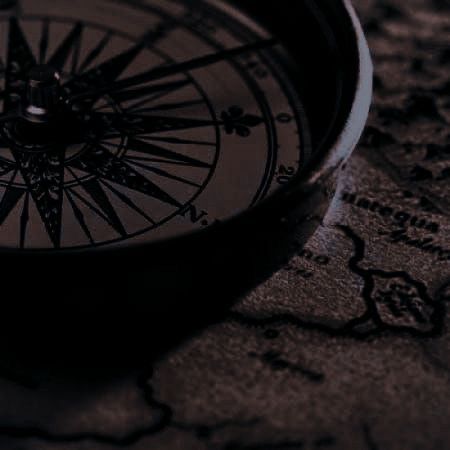
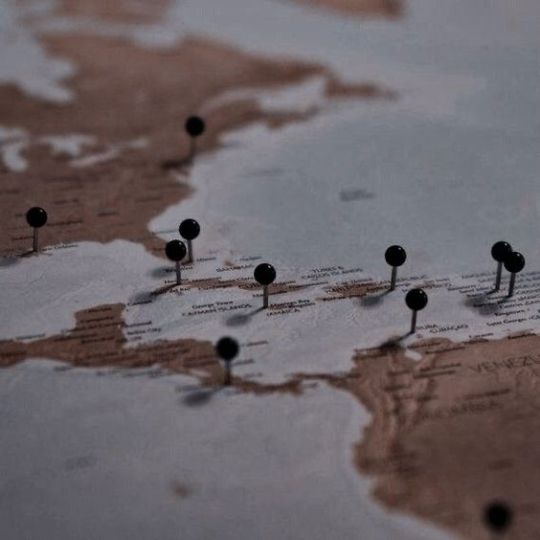
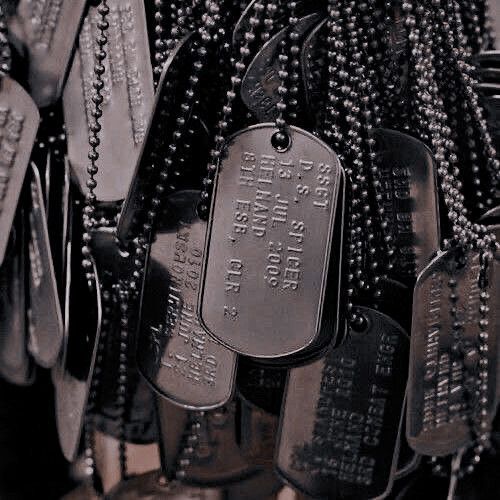

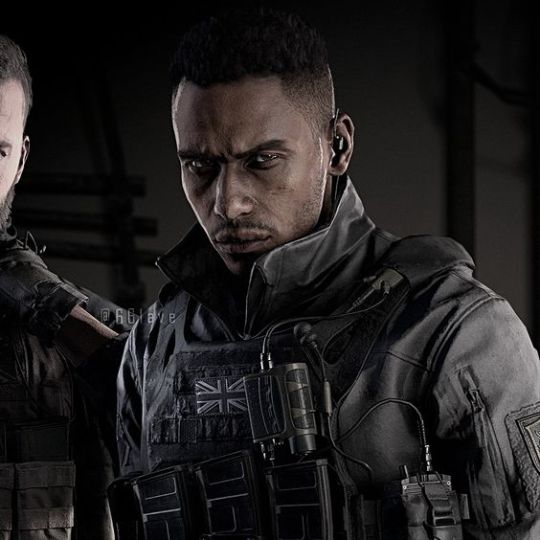
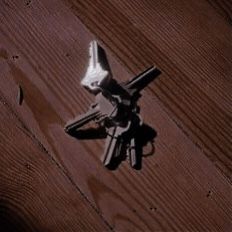
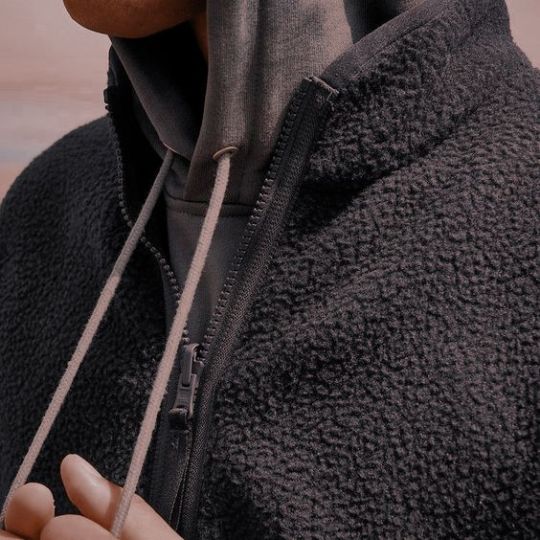
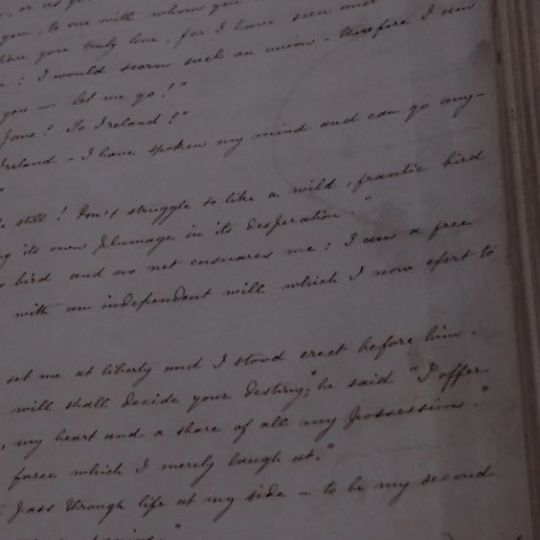
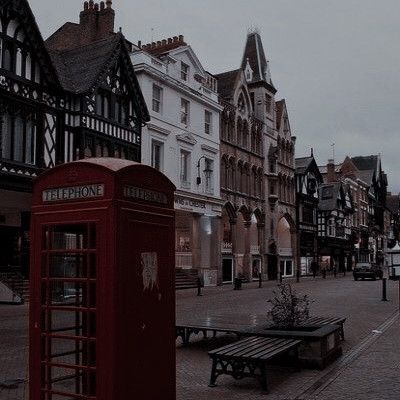
𝐊𝐲𝐥𝐞 '𝐆𝐚𝐳' 𝐆𝐚𝐫𝐫𝐢𝐜𝐤
ISFP
Gryffindor
Chaotic Good
Gemini Sun, Virgo Moon, Cancer Rising
The fact that Kyle Garrick doesn't have as much popularity as some of the other characters in the Call of Duty world. is sinful. It's blasphemy.
Look, at first I was one of those people who didn't like Gaz as much as the rest of the Task Force, but now, NOW, I see him as such a valuable member. This is my formal apology to thy beautiful god of a man, Gaz.
And also a post so those that say, 'they don't know anything about Gaz so they cannot include him' - well here's your info babes!
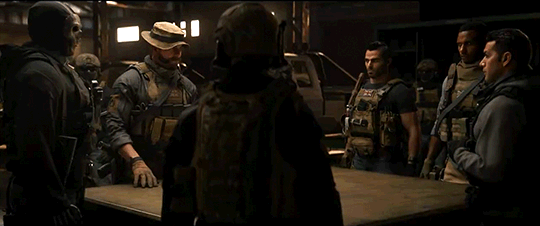
"𝑳𝒆𝒕'𝒔 𝒈𝒆𝒕 𝒊𝒕 𝒅𝒐𝒏𝒆, 𝒚𝒆𝒂𝒉?"
— 𝖪𝗒𝗅𝖾 𝖦𝖺𝗋𝗋𝗂𝖼𝗄
Alias(es)
Sabre 2-6
Bravo 0-5
Bravo 2-6
Bravo 6-2
Bravo 6-1
Gaz
Nationality: British
Rank: Sergeant
Sergeant is a senior role of responsibility, promotion to which typically takes place after 12 years of service, depending on ability. Sergeants typically are second in command of a troop or platoon of up to 35 soldiers, with the important responsibility for advising and assisting junior officers.
Birth: 1993
However, he is older than Soap.
Hair: Black
Eyes: Brown
Kyle Garrick enlisted in the British Army in 2008, serving in the Duke of Lancaster's Regiment, spending four years participating in test flights, jump competition and marksmanship before passing selection for Her Majesty's elite Special Air Service (SAS), where he is currently serving as a Sergeant for his sixth year.
Tasked to Northern Ireland, Bosnia, Turkey, Iraq, Afghanistan, and Syria. Garrick has spent the better part of his career hunting terrorist fighters.
Kyle earned the U.S. Marine Corps Gold Parachute Wings at Marine Corps Base Camp Lejeune in North Carolina whilst on an exchange attachment and routinely cross-loads on operations with the SAS' American counterparts, the Navy SEALs.
Required to undergo resistance to interrogation (RTI) testing, Kyle was the only candidate in his class to escape the facility and evade capture.
Routinely subjected to physically and mentally uncomfortable scenarios, Kyle prides himself on high tolerance and tactical awareness.
Sergeant Garrick was awarded the Queen's Gallantry Medal and the General Service Medal for both covert and overt counter-terrorism operations in the Middle East, disrupting opium supply lines and poppy production, a major source of terrorist financing.
With expertise in prime target elimination, demolitions, weapons tactics, covert surveillance and VIP protection, Kyle currently serves on the SAS domestic counter-terror program, executing homefield missions with metropolitan police forces on European soil.
Challenging duty, due to civilian and collateral damage issues, Kyle seeks the opportunity to serve abroad again, and make a real difference combating the threat of terror.
Quotes
" Fuck off, shit pouch."
"It shouldn't have happened in the first place sir."
"They sent us in half assed, so everyone can just keep pretending we're not at war."
"I'm not dead, Nik. I'm hanging from a bloody rope!"
Personality
Very rarely does Kyle demand attention. He's observant problem-solving and bases his decisions on his instincts and values, and focuses on enjoying the present.
However, with the line of work he's in. Kyle has had to change the way he reacts to things. One really obvious scene between him and Cpt Price shows how this job is changing Kyle e.g,. Price’s quote about bloodying your hands after taking the gloves off.
Even so, I do think he's the most gentle of the four men, the kindest - almost like he's clung to his humanity with everything he's got.
sources: @mockerycrow. callofdutyfandom.com.
#kyle garrick#kyle garrick moodboard#gaz garrick moodboard#moodboard#aesthetic#witch the writer's moodboards#witchthewriter#cod moodboard#cod aesthetic#kyle gaz garrick#kyle garrick x you#gaz garrick#gaz cod#sergeant kyle gaz garrick#cod gaz#kyle garrick character profile#kyle garrick profile
39 notes
·
View notes
Text
‘We won’t stop’: How Columbia’s students etched a new Gaza protest legacy
Inside a movement that took over a university building and lost its encampment within 24 hours – yet refuses to die.
New York, United States — At about 10pm on Monday, April 29, I thought I would call it a night.
My student journalist colleagues and I had stayed late into the night on Columbia University’s campus the previous couple of days, reporting on a story that had grabbed the world’s attention: the pro-Palestine protests and encampment that had inspired similar campaigns in schools across the United States and globally.
As I slung my camera bag on my back and began to leave campus, walking by the camp, I got a tip from a passing protester: “I would stick around till about midnight,” they said. “Maybe go home first, though.”
Got it. I went home to charge backup camera batteries and grab spare memory cards before leaving for campus again.
Back at Columbia, it appeared that more than one of us had gotten the tip. Crowds of student journalists, all of us with matching paper badges and blue tape on our clothes, waited next to the encampment for whatever was to come. Our journalism faculty stood by our side, as they had been doing throughout.
Protesters grouped into “platoons”, and while we didn’t know what to expect, we kept eyes on different corners.
We split up to make sure different spots were covered; a few of us stuck by Pulitzer Hall, the home of Columbia Journalism School, where a small number of protesters had convened, while some others stood ready with cameras and recorders by the encampment.
That is when it all began. Campers began walking their tents off the lawn. One group began chanting. Another at the opposite end of the lawn sang protest hymns. I was with a small cohort of journalists who followed the tents to another small lawn, a clever decoy – whether intended or not – that meant many of us missed the moment, at the opposite end of campus, when protesters entered Hamilton Hall.
By the time we had run over, tens of student protesters had gathered to link arms outside the building, which their predecessors had taken over in 1968 to protest against the Vietnam War, and in 1985 to demand that Columbia divest from firms tied to apartheid South Africa.
Two of my colleagues were in the middle of the scrum, up against the doors watching two counter-protesters attempt to stop the occupation before being pushed out. Protesters rushed metal picnic tables, wooden chairs, trash cans, and planters to the doors where they were zip-tied together, effectively forming a barricade.
Two masked individuals appeared from a second-floor balcony to cheers and applause. They unfurled a hand-painted sign, “Hind’s Hall”, a reference to the six-year-old Palestinian girl who was killed with her family in their car in January as they tried to escape Israel’s military assault in Gaza.
That night, I fell asleep on the floor of a sixth-storey classroom in Pulitzer Hall to the echoes of song, one lone voice amplified through a megaphone, coming from Hamilton Hall: “This joy that I have, the world didn’t give it to me … the world can’t take it away.”
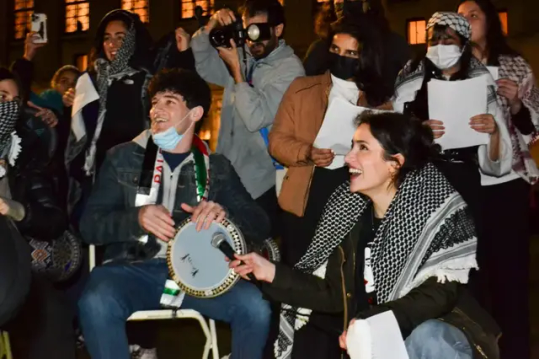
Student protesters playing music at the Columbia University encampment in New York City [Yasmeen Altaji/Al Jazeera]
The final offer
The morning before had felt very different. Columbia University’s South Lawn was packed, and the little protest village in the heart of the campus – dozens of tents and tarps comprising the “Gaza solidarity encampment” – was bustling with life, two weeks since its erection.
The protest is rooted in a decades-long movement for Palestinian rights in their homeland, and to hold Israel accountable for its illegal occupation of Palestinian territories. The current campaign against Israel’s war on Gaza – in which more than 34,000 people have been killed – also aims to pressure Columbia to divest from Israel-linked companies, just as the university did in the case of apartheid South Africa after similar protests four decades ago.
In my time covering the protest, the sounds at the encampment varied. Some days, you could hear the (Islamic) adhan, or the chants of (Jewish) Passover prayer. Or the sounds of the dumbek (drum) and sharp violins echoing microtonal hymns of Palestinian folk music and classical Andalusian muwashshah. Speakers amplified the melodies of iconic musicians like Abdel Halim Hafez and Fairuz.
Protesters shared donated hot meals – pizzas and samosas, bagels and eggs, sacks of mandarins and tubs of crackers, muffins and cookies spread on a tarp aptly called the “cornucopia”.
One camper had set up a makeshift nail parlour, painting red, white, black and green manicures matching the Palestinian flag. Cardboard “street signs” named the tight spaces between rows of tents “Walid Daqqa Road”, after the Palestinian novelist and activist who died of cancer in April, while in Israeli custody.
In the lawn’s centre, organisers routinely updated a whiteboard to reflect the day’s programmed activities: Dhuhr prayer and Shabbat dinner, with jazz in the mix, too.
In a corner of the lawn near the main campus walk, an “art guild” was buzzing with protesters painting signs, drawing patterns of the keffiyeh, decorating and personalising tent spaces.
But that Monday, campers received a final offer from the university administration under President Nemat “Minouche” Shafik: evacuate now, and evade suspension. Campers defied the order.
And by Monday night, the morning’s bustle had died down to a hum, then a whisper, before the eruption that culminated in the takeover of Hamilton Hall. At the encampment site, the zipper flap doors of empty tents billowed in the breeze. Blankets lay crumpled beside pillows still dented from a nap; a sole LED lantern left lit on the ground, a paintbrush crusted with dried red and green acrylic lay stuck on a paper plate.
It’s a community that student journalists like myself at the Columbia Journalism School had closely observed for days at a stretch, unlike the “outside media” who were only allowed on to campus in daily two-hour windows since the encampment went up. Joining us were undergraduate peers at student publications including WKCR and the Columbia Daily Spectator.
A community that, through the intensifying attention on its members, had been trying to emphasise that they weren’t the story. Signs planted across the lawn read: “All eyes on Gaza.”
But in the 24 hours that would follow, the world’s gaze on Columbia would only sharpen.
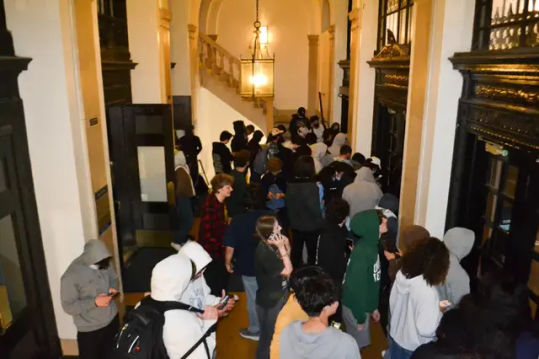
Students were trapped inside the entrance vestibule at John Jay Hall in Columbia University in New York on Tuesday, April 30, 2023 [Yasmeen Altaji/Al Jazeera]
The raid
Tuesday morning started eerily quiet. The camp was empty, save for a few protesters, and Hamilton Hall was sleepy, the only movement coming from a banner reading “INTIFADA” hanging off the side of the building.
Just a few days prior, far before the occupation of Hamilton Hall, the Columbia administration had sent a notice arguing that “to bring back the NYPD at this time would be counterproductive, further inflaming what is happening on campus, and drawing thousands to our doorstep who would threaten our community”.
The note was met with mistrust by protesters: After all, the university had already called the police to campus for the first time in more than 50 years in April to try to clear the encampment. More than 100 students had been arrested.
Instead, I heard organisers advise campers to pack their belongings in trash bags and write phone numbers on their arms in case of arrest.
By Tuesday night, their apprehension would turn into reality. The NYPD entered Columbia’s campus shortly after 9pm on Tuesday (01:00 GMT on Wednesday).
Students linked arms and sang together in anticipation before the harmonies of “We shall not be moved” merged with the march of hundreds of police officers making their way, in formation, to Hamilton Hall.
Calls through long-range acoustic devices (LRAD) to disperse or face arrest, echoed across the campus square, all the time weaving in and out of the floating tunes of the protest hymns, earworms that anyone who’d been on campus had likely come to memorise.
Protesters outside of Hamilton braced for arrest. But officers turned away from them upon arrival, and instead turned towards us – onlookers and press.
Officers instructed us to vacate the area. We walked backwards to get everything on video. “It’s easier if you face forward,” one officer said. “Turn around so you don’t fall,” another yelled repeatedly in a collective command. “Time to go inside,” another said. “Back to your dorms.”
While our backs were against the door of a building at the end of the courtyard where Hamilton was, the doors opened, and officers raised their batons, giving one final push until we were all inside. There was a moment of disorientation before we realised where we were: inside an undergraduate dormitory called John Jay Hall.
It’s where the student health centre, a dining hall, and a late-night campus eatery are. But we couldn’t see any of that. While police guarded the doors into the entry vestibule of the building in front of us, campus security guarded the rest of the building behind us, restricting access to dorm residents.
With about 30 or 40 of us squeezed into the small entry vestibule, ventilation was poor. We wouldn’t reach the bathroom. Red arrows pointed towards the emergency exit but the doors were blocked by officers. Phone batteries were dying. And most pressing, for the journalists among us: we couldn’t see Hamilton beyond the bodies of officers standing at John Jay’s glass doors.
For about three hours, students kicked at the front doors, slouched on the ground against the wall, and slept with their backpacks as pillows. One student sat cross-legged on the floor, sobbing softly while her friend comforted her.
Three hours passed in that hall before we were let out, officers directing us to dorms and buildings they did not know the names or locations of. “We know you want to get out of here. We’re doing you a favour,” one said.
As I left campus at about 1:30am, I walked past a crew hauling the tents off the South Lawn and into a garbage truck that crushed them on the spot.
[See embedded video in the article]
The remains
On Wednesday, the tension wasn’t palpable, only disappointment. The campus was quiet, but not calm. It was completely empty. No one, aside from residents and essential staff – which the journalism faculty ensured we were viewed as, as student journalists – were allowed past campus gates.
Where the encampment once stood, there were only marks of discoloured grass in the shape of rectangular tent bases.
But the movement seems anything but a ghost; on Wednesday, protesters hosted a “light show” beside the campus, projecting titles onto the public-facing side of Hamilton Hall that read “Hind’s Hall forever.”
Every year, on the eve of exams, students gather to let out what is known as a “primal scream” on campus. On Thursday, they took that tradition to Shafik’s house, shouting outside her door.
On Friday, protesters again lined the street outside of Columbia’s gate. And the words still rang through the neighbourhood: “Disclose, divest, we will not stop, we will not rest.”
#palestine#free palestine#save palestine#gaza#free gaza#save gaza#israel#israel palestine conflict#israeli apartheid#bds boycott#boycott israel#bds movement#war on gaza#gaza genocide#gaza strip#world news#current events#palestinian genocide#stop the genocide#genocide#columbia university#student activism#activism#demonstration
34 notes
·
View notes
Text
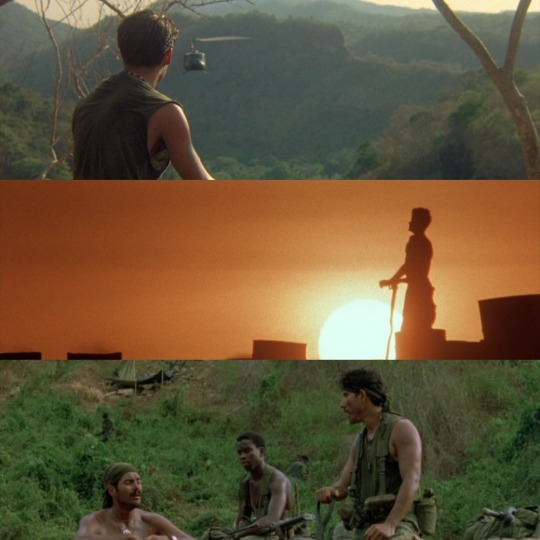
Platoon (1986, Oliver Stone)
24/03/2024
Platoon is a 1986 film, written and directed by Oliver Stone, which deals with his time in Vietnam as a volunteer during the war and is inspired by the real experiences the director had between 1967 and 1971 during his military service.
The film won 4 Oscars out of 8 nominations and Oliver Stone was also awarded the Silver Bear in Berlin as best director. In 1998 the American Film Institute placed it in eighty-third place in the ranking of the one hundred best American films of all time, while ten years later, in the updated list, it dropped to eighty-sixth place. In 2019, it was chosen for preservation in the National Film Registry of the United States Library of Congress.
The bloodiest episode, as in many other films dealing with the Vietnam War, is inspired by the most atrocious event of that conflict, known to history as the My Lai massacre, in which American soldiers committed atrocities including rape of very young girls, indiscriminate killings of innocent civilians, destruction of the homes and resources of the inhabitants, believed to be allies of the Viet Cong, despite there being no evidence. From this perspective, the figure of the platoon commander, Lieutenant Wolfe, both for his inability to control his men and for other characteristics, can be traced back to the main person responsible for My Lai, the then US Army Lieutenant William Calley, convicted to several years of military detention for that very affair.
Due to an error by Lieutenant Wolfe, who gives wrong coordinates via radio, the platoon is decimated by friendly artillery.
In the last war action of his volunteer service, Chris escapes a deadly ambush by the Viet Cong who almost completely annihilate the platoon and the subsequent American bombing with napalm.
Initially Hollywood snubs the script as many producers are of the opinion that what three is to say about the Vietnam War has already been reported in highly successful films such as Apocalypse Now and The Deer Hunter, however the strength of Stone's script still attracts some producers who see enormous potential in him. He was then assigned to write a screenplay for another film, Stone accepted and wrote Midnight Express in 1977, thanks to which he won the Oscar for best non-original screenplay (first statuette for Stone) a fact that made all of Hollywood understand the Stone's enormous potential; it was therefore not difficult for him to find the producer to begin work on Platoon.
The film was shot, following the great example of Apocalypse Now, director Francis Ford Coppola's masterpiece, on the island of Luzon, in the Philippines, starting in February 1986. The film's production was almost canceled due to the political upheavals in country, due to Ferdinand Marcos, dictator of the country. Upon arrival in the Philippines, the cast members underwent a two-week course of intensive training by Dale Dye (former Marine captain during the Vietnam War and interpreter of Captain Harris), during which they had to dig trenches and suffer forced marches and night "ambushes".
#platoon#film#1986#oliver stone#vietnam#vietnam war#1967#1971#academy awards#berlin international film festival#berlin#1998#american film institute#AFI's 100 Years 100 Movies#2019#national film registry#library of congress#united states#My Lai massacre#William Calley#friendly fire#Napalm#apocalypse now#the deer hunter#midnight express#Academy Award for Best Adapted Screenplay#francis ford coppola#luzon#philippines#ferdinand marcos
12 notes
·
View notes
Note
Happy WBW! What kind of houses exist in your world? Mansions? Cottages? Single family? Duplexes? Apartments? Castles? Space ships?
Hi Nopal, Happy WBW!
I'll answer for both DoD and The Fulcrum. This will get long.
Avia
In The Fulcrum, we have three cultures described so far:
The holy city of Lornai is located in seven ancient ziggurats that rise from the waters of a shallow bay. While they were initially made for creatures twice the size of avians, they'd been since split up into smaller rooms with wooden partitions. The lower the caste, the tighter the living quarters, and so ... starts off having just enough room to spend the night and store a handful of possessions, but it's just a tight hollow, not a place where she'd spend her free time.
In comparison, a Priest's apartment is quite spacious, with a large nest of cushions and with a sand bath set up in the corner. Still, eating is done in communal areas, and nobody is expected to spend free time in their sleeping quarters, unless they're sick.
The avians living in the Sunswept Plains centre their lives around giant beetles. Their homes will have a brick or clay, circular foundation, and a conical roof made of beetle elytra. The elytra are amber in colour and a little translucent, and are often engraved and sections are thinned to make windows and patterns that light up with the sun.
The treefolk of the Wandering Woods live in the crowns of the giant trees, and shape their homes by weaving wines and branches, that will then grow into the desired shape. Similarly, vine bridges will connect the trees. They never cut into the trees.
Sunblessed Realm
I'll go through what we see on page in Days of Dusk, which is a more or less representative sample (except for city houses):
Cottages are anywhere from 1 to 4-5 rooms. They are often built around a large tiled stove (example picture) that keeps the house warm in winter. They vary between regions - can be wooden, can be brick, often plastered white. One element that's common to all of them though, is the memory shrine - a little shelf in a far corner or in the private room, decorated with a doily and dry flowers, where the mementos of the deceased family members are stored.
Especially in the second book, the characters consider the Army barracks to be their home, so I'm going to include those - uniform red-brick buildings, fairly modern by the setting's standards, with good plumbing and heating. Enlisted Swords will have small single rooms, with a bed, a trunk, a small desk and a chair, with shared washrooms. In comparison, senior officers would have larger apartment arranged in separate blocks around communal gardens, with enough space for a spouse and to entertain guest. NB, they'll also have an orderly to keep their living quarters tidy.
The manors of the minor nobility are honestly not huge - single-storey, 3-4 bedrooms, a dining room, a drawing room, a couple more smaller rooms/studies. The decorations depend on the region and on the family's preferences. These may include hunting trophies, woven rugs, paintings... but the House of the Sixth Tree was notorious for mounting firearms and engineering schematics on the walls, in lieu of artworks.
And of course these range all the way to the princes' greathouses, with dozens of rooms, a platoon of staff, collections of artworks and antiques, etc.
I'm going to also link the info dump on architecture and on folk arts, which include home decorations.
In The Truth Teller, the plot is contained within a city, and while the flats and the houses in the suburbs aren't that different from the real world, the appliances that might be surprising to see are radios (but no TVs) and stasis arrays (the works of crystallurgists) instead of fridges.
Also, this isn't a common housing situation, but Knacked tend to occupy single room apartments, often the least desirable ones, like directly under the roof. Lady Night is rumoured to offer hostel-style lodging and cheap long-term housing to Knacked folks, by remodelling large housing blocks to have single rooms, with communal kitchens and shared washrooms. But that's just the rumour😉
#I haven't got to the space age yet#but now I wonder what it would look like given the metaphysics#wbw#ask and i shall answer#sunblessed realm#the truth teller#days of dusk#the fulcrum
5 notes
·
View notes
Text
The Best Picture Oscar My Way (1980-1999)
Here’s Part 2 of Best Picture My Way (as started here). All information about my approach with this category can be found on that linked first part.
For convenience sake, I’ll relay this message. Only the films I add onto here as nominees will have listed nominated producers next to the movie’s title. (Here’s the Wikipedia page for the rest.)
1980
The Empire Strikes Back - Gary Kurtz
Raging Bull
The Elephant Man
Coal Miner’s Daughter
Ordinary People
1981
Raiders of the Lost Ark
Das Boot - Gunter Rohrbach; Michael Bittins
Reds
On the Golden Pond
Chariots of Fire
1982
Tootsie
E.T.: The Extra-Terrestrial
Fitzcarraldo - Werner Herzog; Willi Segler; Lucki Stipetic
Missing
Gandhi
1983
Fanny and Alexander - Jorn Donner
Terms of Endearment
Scarface - Martin Bregman
Mender Mercies
The Right Stuff
1984
Amadeus (still)
The Terminator - Gale Anne Hurd
Love Streams - Yoram Globus; Menahem Golan
Ghostbusters - Ivan Reitman
A Passage to India
1985
Back to the Future - Neil Canton; Bob Gale
The Color Purple
After Hours - Robert F. Colesberry; Griffin Dunne; Amy Robinson
Ran - Masato Hara; Serge Silberman
Witness
1986
Platoon (still)
Misery - Rob Reiner; Andrew Scheinman
Hannah and Her Sisters
A Room with a View
Blue Velvet - Fred C. Caruso
1987
The Last Emperor (still)
The Princess Bride - Rob Reiner; Andrew Scheinman
Broadcast News
Moonstruck
Fatal Attraction
1988
Who Framed Roger Rabbit - Frank Marshall; Robert Watts
Rain Man
Dangerous Liaisons
Mississippi Burning
The Last Temptation of Christ - Barbara De Fina
1989
Do The Right Thing - Spike Lee
Driving Miss Daisy
Dead Poets Society
My Left Foot
Cinema Paradiso - Giovanna Romagnoli
1990
Goodfellas
Dances with Wolves
Edward Scissorhands - Tim Burton; Denise Di Novi
Ghost
The Godfather Part III
1991
The Silence of the Lambs (still)
Thelma & Louise - Ridley Scott
Beauty and the Beast
Boyz in the Hood - Steve Nicolaides
JFK
1992
Unforgiven (still)
A Few Good Men
Malcolm X - Spike Lee; Marvin Worth
Reservoir Dogs - Lawrence Bender; Harvey Keitel
Aladdin - Ron Clements; John Musker
1993
Schindler’s List (still)
The Piano
Philadelphia - Jonathan Demme; Edward Saxon
In The Name of the Father
The Fugitive
1994
The Lion King - Don Hahn
Forrest Gump
Pulp Fiction
The Shawshank Redemption
Eat Drink Man Woman - Kong Hsu; Li-Kong Hsu
1995
Toy Story - Bonnie Arnold; Ralph Guggenheim
Se7en - Phyllis Carlyle; Arnold Kopelson
The Postman (Il Postino)
Before Sunrise - Anne Walker-McBay
Braveheart
1996
Fargo
Trainspotting - Andrew Macdonald
Secrets & Lies
Jerry Maguire
The English Patient
1997
Titanic (still)
Good Will Hunting
L.A. Confidential
Princess Mononoke - Toshio Suzuki
Boogie Nights - Paul Thomas Anderson; Lloyd Levin; John S. Lyons; JoAnne Sellar
Lost Highway - Deepak Nayar; Tom Sternberg; Mary Sweeney
As Good as It Gets
The Full Monty
1998
Saving Private Ryan
Life is Beautiful
The Thin Red Line
The Big Lebowski - Joel and Ethan Coen
Mulan - Pam Coats
Central Station - Arthur Cohn; Martine de Clermont-Tonnerre; Robert Redford; Walter Salles
The Truman Show - Edward S. Feldman; Andrew Niccol; Scott Rudin; Adam Schroeder
Rushmore - Barry Mendel; Paul Schiff
Shakespeare in Love
1999
The Matrix - Joel Silver
American Beauty
The Green Mile
The Sixth Sense
Magnolia - Paul Thomas Anderson; JoAnne Sellar
The Straight Story - Neal Edelstein; Mary Sweeney
Man on the Moon - Danny DeVito; Michael Shamberg; Stacey Sher
Being John Malkovich - Steve Golin; Vincent Landay; Sandy Stern; Michael Stipe
#cinema#academy award#oscars#award show#alternative#animation#film#movies#I'm officially insane#international cinema#hollywood#the matrix#coen brothers#steven spielberg#disney#martin scorsese#robert zemeckis
6 notes
·
View notes
Photo
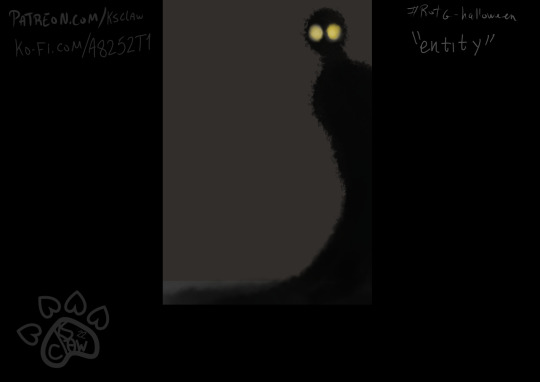
ROTG Halloween day 1: “Entity”
From the report of Corporal Kozmotis Pitchiner
Fiore’s Match 45th, 56007bcr hour 1
Received emergency call from a small settlement about a possible Fearling Colony. 1st Sgt. Mattheis wanted to just send a patrol, but Lt. Col. Grattír decided against it. He recommended a platoon instead, and as the Ursa Major carries an entire regiment, it was approved.
We arrived at the settlement before nightfall. The settlement is rather small, more of a scouting party for possible colonization, rather than an actual colony. Most of the houses are rickety and cheaply set up, easy to remove should the order come in.
We set up around the base, setting up small patrols. The night in this area is unfortunately among the long ones, which works against us if the Fearling Colony is confirmed. They thrive where the nights are dark and cold, and this is no Praxis III with it’s humid jungles and three suns.
I have just been ordered to go rest, as I can expect being sent on the third and sixth patrol (Lt. Col. prefers having us circulate.)
-
Fiore’s Match 45th, 56007bcr hour 3
The other patrols have not spotted anything yet, but there have been signs. Strange sounds and noises. Not simple fearling activity, we have been warned. We’ve been ordered to keep any firing arms in our holsters, as a stray bullet could cause a panic due to the noise. Instead, we are armed with crossbows or bladed spears.
We walked the same routes as the other patrols, and yet, I felt something was off the moment we went near one of what we have called the sheds. It had been used as a marker for a potential mine entry, as well as an office for the leader of the settlement, but I felt it as though something was itching under my skin the moment we got near it. I notified the leader of our patrol, and I thank the stars, I was not the only one who could feel something was off.
Two men stepped forward. One listened at the door, the other grabbed the handle and turned it. It wasn’t locked, despite how the settlement leader had told us they kept everything locked at night.
We readied ourselves as the door was opened. And I am glad we did, because I fear that if we had not been prepared for a fight, we might have been taken by surprise by the entity we saw before us.
It stood in the doorway, almost as tall as Viralys (and he is a decent height for a Pooka without the long ears), it’s eyes seeming to emit a low light.
Our commanding officer shouted “don’t move!” but that only set the creature off. It made a noise, like words being whispered and hissed by a hundred voices, before it seemed to... dissipate before our eyes, melting into the shadows.
We are still not certain about the possibility of a colony. But now we at least have it confirmed that there are Nightmare Men.”
#ksclawart#rotghalloween2022#rotghalloween#rise of the guardians#guardians of childhood#Kozmotis Pitchiner#Nightmare Men
13 notes
·
View notes
Text
List of titles
To make the search on the blog easier, I've compiled a list of the movies, shows, etc that have at least one music here. I'll do my best to keep it updated as I add more.
Unfortunately tumblr won't let me publish a post with so many links, so I'm unable to add a link to each corresponding tag.
See the list under the cut :
List of movies / animated movies :
12 Monkeys
28 Days Later
2001: A Space Odyssey
A Girl Walks Home Alone At Night
Alien
Aliens
American Beauty
A Nightmare On Elm Street
Arizona Dream
A Series of Unfortunate Events
Babe
Baby Driver
Basic Instinct
Batman Returns
Beetlejuice
Black Swan
Blade Runner
Blood Simple
Bram Stoker's Dracula
Brazil
Candyman
Carrie
Casper
Clockwork Orange
Conan The Barbarian
Coraline
Corpse Bride
Crash
Crimes Of The Future
Dancer In The Dark
Dark City
Darkman
Death Proof
Devdas
Die Hard
Dirty Dancing
Divine Intervention
Donnie Darko
Don't Worry I'm Fine
Dune (1984)
Dr. Strangelove
Dune (2021)
Edward Scissorhands
Escaflowne
Escape From New-York
Eternal Sunshine Of The Spotless Mind
Excalibur
Eyes Without A Face
Fargo
Firestarter
For A Few Dollars More
From Dusk Till Dawn
From Hell
Full Metal Jacket
Gattaca
Get Out
Ghost
Ghostbusters
Ghost In The Shell
Gremlins
Groundhog Day
Halloween
Hellraiser
Hereditary
Home Alone
Howl's Moving Castle
Interstellar
Interview With A Vampire
In The Mood For Love
Jane Eyre (1996)
Jane Eyre (2011)
Jurassic Park
La Belle et la Bête / Beauty And The Beast (1946)
Legend
Leon
Le Père Noël est une ordure / Santa Claus is a Stinker
Lisa Frankenstein
Little Miss Sunshine
Little Women (1994)
Mad Max Fury Road
Mandy
Melancholia
Microcosmos
Midnight Express
Midsommar
Moonrise Kingdom
Moulin Rouge!
Mulholland Drive
Near Dark
Nikita
Nope
O Brother, Where Art Thou?
Oldboy
Once Upon A Time In The West
Only Lovers Left Alive
Oppenheimer
Out Of Rosenheim / Bagdad Café
Perfect Blue
Perfume : The Story Of A Murderer
Portrait Of A Lady On Fire
Ravenous
Re-Animator
Romeo + Juliet
Pan's Labyrinth
Phantom Of The Paradise
Phenomena
Philadelphia
Pi
Pink Floyd The Wall
Platoon
Poltergeist
Practical Magic
Predator
Pride And Prejudice
Princess Mononoke
Queen Of The Damned
Requiem For A Dream
Robocop
Rosemary’s Baby
Scanners
Scream
Sleepwalkers
Sleepy Hollow
Starship Troopers
Star Wars Episode IV
Star Wars Episode V
Star Wars Episode VI
Strictly Ballroom
Suspiria (1977)
Suspiria (2018)
Tacones Lejanos / High Heels
Terminator 2 : Judgement Day
The Abyss
The Addams Family
The City Of Lost Children
The Company Of Wolves
The Craft
The Crow
The Dark Crystal
The Elephant Man
The Exorcist
The Fifth Element
The Fly
The Frighteners
The Hobbit : An Unexpected Journey
The Hunger Games
The Hunger Games : Catching Fire
The Hunger Games : Mockingjay Part 1
The Hunger Games : Mockingjay Part 2
The Innocents
The King And The Mockingbird
The Land Before Time
The Lord Of The Rings : The Fellowship Of The Ring
The Lord Of The Rings : The Two Towers
The Lord Of The Rings : The Return Of The King
The Lost Boys
The Lovely Bones
The Matrix
The Mission
The Neverending Story
The Nightmare Before Christmas
The Omen
The Others
The Piano
The Prestige
The Rocky Horror Picture Show
The Shining
The Sixth Sense
The Tale Of The Princess Kaguya
The Terminator
The Thing
The Thin Red Line
The Virgin Suicides
The Witch
The Witches Of Eastwick
Time Of The Gypsy
Titane
Tommy
Total Recall
Tron Legacy
Under The Skin
Us
Whiplash
Willow
Wings Of Desire / Der Himmel über Berlin
List of series / miniseries / animated series :
Battlestar Galactica
Berserk
Buffy The Vampire Slayer
Cowboy Bebop
Dark
Dragon Ball Z
Elfen Lied
Game Of Thrones
Lost
Lucifer
Misfits
Our Flag Means Death
Over The Garden Wall
Record Of Lodoss War : Chronicles Of The Heroic Knight
Serial Experiments Lain
Stephen King's IT
Stranger Things
Teen Wolf
The Dark Crystal : Age Of Resistance
The Haunting of Bly Manor
The Haunting of Hill House
The Vision Of Escaflowne
True Blood
Twin Peaks
Westworld
What We Do In The Shadows
Yellowjackets
List of games :
Bad Dream : Coma
Final Fantasy VII
Stardew Valley
List of podcasts :
The Magnus Archives
The Magnus Protocol
1 note
·
View note
Text

@wcyfarer said:
❝ For them to protect it like this, you just know there’s got to be treasure down there. ❞ fatui aether

“Regardless of what you hear in there, you will keep your mouth shut, do I make myself clear?” The sixth harbinger relays his order to the sole member of his current platoon who accompanied him to this secret voyage to Watatsumi Island. “You’re not to think on a course of action, react upon instinct, absolutely nothing without my spoken order first. I will do all the talking.” He speaks with a slight tinge of annoyance as he adjusts his hat. It isn’t so much the idea of Aether being here that has Scaramouche worked up so much as to why it was ordered that Scaramouche not voyage to this island by himself that has him in the rocks. That doesn’t matter now however, he’ll get over it. It’s well beyond midnight now, the moon up in the sky at its most prime time and just a short distance away a cave guarded by two guards of the resistance looking straight at him. This meeting, of course, right underneath Sanganomiya Kokomi and their own general’s nose. Nothing like secret forbidden meetings to get the blood pumping every once in a while.
Scaramouche’s troops have given those in the resistance a glimpse of the power delusions carry in their last encounter with The Shogun’s troops and as a result Kokomi’s men, in secret, reached out to Scaramouche and requested that they meet in secret to discuss. Like a school of fishes getting caught in Scaramouche’s net honestly. He knew this was going to come, it was only a matter of waiting for them to reach out to him first. “Come on.” Scaramouche relays his final orders to Aether as he walks towards the cave, assuming that Aether will also tag along. There’s no need for the sixth harbinger to introduce himself for he is recognized upon arrival, the guards merely walk after them inside into the dimly lit cave. Scaramouche and Aether are heavily outnumbered, there’s no doubt about it and many would not even fathom doing such a thing, walking into hostile territory when odds are against them. But, those others are weak and Scaramouche isn’t. The safety in numbers beehive mindset will give these resistance troops a sense of security that will make this upcoming discussion such an easy thing for them to swallow, and perhaps even comply without so much as resisting the idea further. Truth be told Scaramouche doesn’t give a shit about any of this, nothing that’s going on is of any benefit to him or a bad thing. He’s just here following orders, as annoying as those may be, but that is that. The Fatui want to profit off of the secret delusion factory they have established here and Scaramouche was the chosen man for the job, to overlook this operation and have it succeed.
One of the guards escorting them from behind oversteps and places his spear in front of them, instructing them to cease in their steps which makes Scaramouche quirk an eyebrow up in question. “Wait here.” The guard instructs with an annoyed tone that’s simply music to Scaramouche’s ears. “Of course.” Scaramouche smiles and nods, watching the two guards head ahead, probably to properly announce those within that they’ve arrived. Though they aren’t within the main chamber, Scaramouche can see a good portion of it from where he stands and not a single sight of the priestess or that dog general which pleases the harbinger very much. Only a couple of foot soldiers waiting within which is the exact bait he aimed to catch. He awaits as patiently as he can when suddenly Aether opens his mouth, prompting the attention from the harbinger. “I told you not to talk unless I said so.” He reminds the other with a displeased tone, and of course he’s thinking about treasure, how annoying. “Oh, you have no idea.” Scaramouche says. Aether’s intuition is a keen one, because treasure is something Watatsumi Island has to spare, there's no doubt about that. Eventually one of the guards returns and motions for both of them to follow, giving them the okay to enter.
“The envoy from the Fatui is here.” Scaramouche hears them announce. “Wait here.” Scaramouche relays his final order to Aether, demanding that he wait by the opening, before he puts on his fake grateful smile once he’s within the dimly lit chamber on his own, surrounded by a good number of Watatsumi’s fine troops.
“Hello there!” Scaramouche holds his hand out in greeting, “hello! A fine night for you all!” He regards them with gusto, with a joy he doesn’t particularly feel. The smile laced neatly on his fair complexion hiding a dark secret. “Well met my dear soldiers.” He nods his head once, concluding his greeting as he stands in the center of the chamber where all could see him.
“The Fatui have sure grown bold.” One of the soldiers speaks, slightly glaring at Scaramouche. “Sending only one of their own harbingers here with... just one escort.” Scaramouche immediately concludes that this foot soldier has no idea what he’s talking about, because oh, if only he knew.
“It is a true honor to be recognized by the brave men of the Resistance.” Scaramouche lies with his signature plastic smile, keeping up his act. “Yet, permit myself to display my manners in good grace and introduce myself nonetheless.” This request is but a demand neatly disguised.

“My name is Scaramouche.” He introduces himself. “The sixth harbinger of the Fatui Harbingers, at your humble service.” He tips his hat, bowing slightly before standing up straight and regarding the soldiers that circle him in this chamber. “And, I come to you in this most propitious of nights to offer further assistance for the cause.” He says. Scaramouche words earn him some silent murmurs and a couple of odd looks before another soldier, with a face drenched in conflict, speaks up.
“Assistance for the cause?” He asks.
“Yes, of course!” Scaramouche directly answers the young soldier right away, clasping his hands together and pacing mindlessly about the space he was given. “As you no doubt surmise our most recent maneuver of ours wasn’t a strategical play. Lets call it... a gesture of the Fatui’s good will. Like you, and everybody else I’m sure, we wish nothing more but to bring a swift end to this... senseless civil war.” His smile fades but for a moment, giving them the impression that this war has also quite in fact hindered the Fatui, when the truth of the matter is Scaramouche is here at all in the first place because the Fatui want to drag out the war as much as possible and continue to profit off of it by playing the two sides, especially now that the soldiers from the resistance are within a much greater access. Growing frustrated with their incompetence, their weaknesses, and not being able to really hold much against the Shogun’s troops. That was until Scaramouche inserted his own men into a scuffle between both sides and showcased to them the power delusions carry and just what they could do for their cause by aiding them in that encounter.
“... Really?” One of their troops ask, not quite believing the harbinger for some reason.”
“Yes, indeed, and we require but a singular compliance.” Scaramouche gets right to it, feeling himself grow tired of this act though honestly he enjoys the theatrics every once in a while. “Abolish the Vision Hunt Decree, make the Shogun’s army bend the knee, with our Delusions which will grant you power that rivals that of a Vision and... can even be stronger than those mere trinkets most of the time.” Scaramouche can feel how the attitude in the chamber shifts at the promise of power. “For a price.” Nothing is ever free, of course. “We want nothing more than to provide your troops with the resources to succeed and defeat the Shogun’s men and put an end to this unnecessary war between brothers and sisters... at a price I’ve no doubt you can all afford I assure you.” Mora, Scaramouche claims. Limitless power just for measly expendable mora is the promise, when he and the only other body in the room, that being Aether, know that the price is so much greater and graver than that... at least to a human it is. Scaramouche stops at the center of the room again, arms on his back as if he’s standing at attention, hearing the men discuss much more loudly amongst themselves. He pauses and waits, like there’s a cue he hasn’t been given before he speaks again. “Oh!” He suddenly perks up, acting like he forgot something else. “How foolish of me to forget. There is one more trivial thing,” he stops there, making sure all the attention has shifted back to him again, “it concerns the priestess and the general.” He lets them know once he’s got their attention again. “The eye-catching priestess of Watatsumi and the resilient general of the Resistance... they are not to know of this accord between us. This alliance,” and he uses the word alliance with it hanging by a mere thread, “is to be only between us, and then you shall all see that when all is said and done not just Inazuma but the entirety of Teyvat will hold you all in the highest regard, as heroes, I assure you.”
There’s a silence in the chamber that lingers for a while, which is counted on, that just lets the harbinger know that there’s contemplation amongst them. When the silence slowly begins to die down once more with silent discussion amongst the soldiers Scaramouche looks over his shoulder to Aether with a small knowing smile.
Hook, line, and sinker for every little stinker.

prompt.
#wcyfarer#in character.#act ii: scaramouche.#inquiries.#wel l then#i went crazy with thi s i am so sorry awraxa#bUT I HOPE IT'S OKAY THANKS FOR THE ASK I APPRECIATE IT!
1 note
·
View note
Text
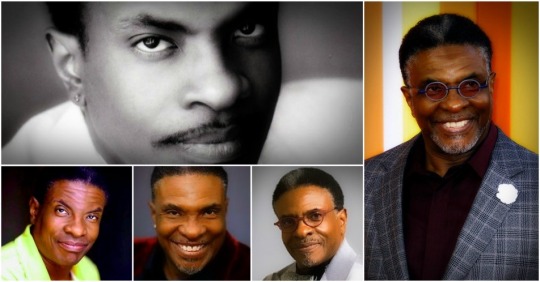
Keith David Williams (born June 4, 1956) is an actor and voice actor. He is known for his work as King in Platoon and Childs in The Thing. He has acted in mainstream films, such as Crash, There’s Something About Mary, Barbershop, and Men at Work.
He has had memorable roles in numerous cult favorites, including Frank in They Live, Abu “Imam” al-Walid in Pitch Black and its sequel The Chronicles of Riddick, General Kimsey in Armageddon, and Big Tim in Darren Aronofsky’s Requiem for a Dream. He starred as Elroy Patashnik in the sixth season of Community. He began starring as Bishop James Greenleaf in Greenleaf.
His Emmy–winning voice-over career includes work as the narrator of Ken Burns films such as The War. Characters that he has voiced include the Arbiter in the Halo series, Goliath on Gargoyles, Al Simmons / Spawn on Todd McFarlane’s Spawn, a role he reprised in the fighting game Mortal Kombat 11, David Anderson in the Mass Effect series, Julius Little, and himself in the Saints Row series, Sergeant Foley in Call of Duty: Modern Warfare 2, Dr. Facilier in The Princess and the Frog, Chaos in Dissidia Final Fantasy and 012, the Flame King in Adventure Time, Solovar in The Flash and the President in Rick and Morty.
He has married twice. He has one son from his first marriage and two daughters from his second marriage.
When asked in an interview on his narration work of The Bible if he was a religious man, he said: “I’m not a religious man. I’m a man of spirit. Religion can get political. I believe in God and spirit. I believe in church. I’ve been baptized. I’ve gone to Catholic, Baptist, Episcopal, and Church of God in Christ.” #africanhistory365 #africanexcellence
0 notes
Text
Yetis in London
or as the press would have you believe
That One Time Escaped Bears Orchestrated A Nerve Gas Attack on the London Underground
Today we talk about The London Incident, when yeti roamed the London Underground and a freaky fog started eating people.
What Is a Yeti?
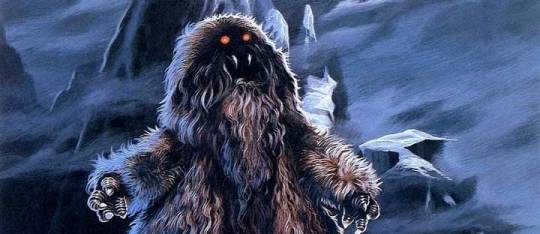
A yeti, as depicted by artist Andrew Skilleter
Also known as the Abominable Snowman, the yeti is a hairy hominid said to roam the Himalayas. Comparable to Bigfoot, the creature is said to be larger, hairier and bulkier than a human, with a domed or conical head and almost no neck. While often depicted as being covered in snow white hair, most reports would suggest the hulking creature to be a brunette.
What Happened?
In early August, 1975, a mysterious fog descended on central London. As the fog expanded, people started to go missing. Those who were lost in the fog simply vanished. By the fifth, the fog had extended as far as the Natural History Museum, and by the sixth it had spread to South Kensington. The areas had to be cordoned off to prevent further disappearances. On the seventh, reports of a web-like fungus in the London Underground system caused the tube to be abandoned completely. London was quickly being taken over by a fog above ground and a fungus below. The military set up base in Goodge Street tube station, having been called in to tackle this strange force. Then, on the ninth, the yeti appeared: sightings of large hairy monsters roaming in the fog. Within three weeks, the fog covered the area from Hammersmith to Cannon Street station. London was under some kind of attack and the military had no power against it.
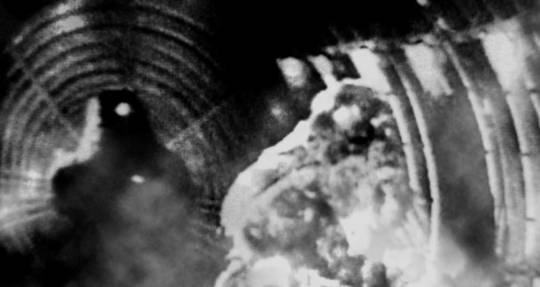
Eye-witness photograph
After the event, the government called a press meeting to reveal the incident was the result of an industrial accident which caused a leak of nerve gas. Some journalists would suggest this was a cover story for a terror attack by unknown foreign powers and many members of the public shared the opinion. When pressed about the yeti, the government claimed they were the result of bears escaping during the incident.
Interestingly, only one representative of the press was actually present for the event, having been sent as a press liaison to the military bunker on Goodge Street. Harold Chorley wrote a piece on the events that was pulled immediately before print and written off as purely sensationalist and fantastical. His report describes a “base under siege” with ferocious yetis lurking in the London Underground attacking and killing military personnel (notably, Colonel Alistair Gordon Lethbridge-Stewart was the only survivor of the military platoon sent to deal with the Underground menace, and would later become brigadier of the newly formed UNIT). While Chorley was known to be a sensationalist, it was unusual for his article to be withdrawn from print. Furthermore, he was blacklisted by the BBC. Was he being silenced for revealing an uncomfortable truth? If his article was a total fabrication, why would Lethbridge-Stewart go on to grant Chorley the honour of writing his memoirs?
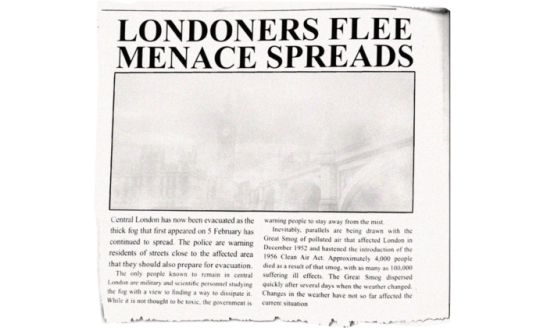
Newspaper article from the event. Interestingly, the date is misprinted. This happened a lot between 1963 and 1989.
Why Would There be Yeti in London?
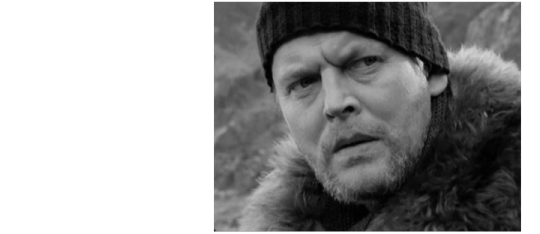
Anthropologist Professor Edward Travers infamously claimed to have encountered live yeti on a Himalayan expedition. While he failed to bring back proof, he did obtain a replica of the mythological creature from a Tibetan monastery, and some fantastic claims of a nebulous “intelligence” that controlled these replicas. His findings brought about scientific uproar and ridicule, but nobody could truly claim to understand the inner workings of this robotic yeti. The artefact of the Det-Sen Monastery was later sold on to private art collector Julius Silverstein for display in his Hall of Curiosities. Professor Travers made several frantic attempts to buy the fake yeti back from Silverstein between 1966 and 1975, until Silverstein was discovered murdered amongst his collection having suffered injuries beyond the means of any human. The yeti was notably missing. Perhaps wandering the foggy streets of London?
So What's The Truth?
It's hard to say what really happened. Even the dates of the events are muddled due to poor record keeping between the 60s and 80s. Chorley's reports of yeti would explain why the army, of all things, was involved in a “gas leak” that lead to the formation of a new branch of the military, and those reports link with Professor Travers' desperate attempts to reclaim the yeti sold to Silverstein and that ensuing mystery.
However, Chorley was a known sensationalist and Travers was succumbing to senility by the time of these events. Some believe Travers may have simply killed Silverstein and reclaimed his prized yeti (though he was never so much as a suspect to the police – did they know something?).
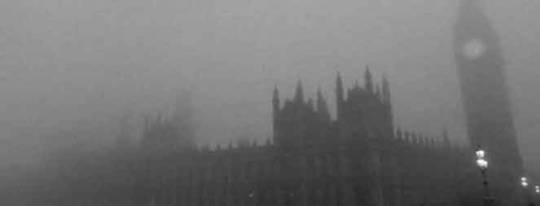
So perhaps the government was telling the truth, and London was simply attacked by escaped bears armed with nerve gas. That's definitely more believable than a robotic yeti controlled by an intelligence from space, surely? Because as we know, nerve gas typically takes the form of a web-like fungus and bears are famous for their ability to walk around in clouds of it, completely unaffected.
Ultimately, no matter which side you believe – the side of the government and their supposed underground nerve gas supply, or the side of the multiple eye-witnesses and their yeti – there are multitudes of holes in either story. All anyone can say is that something extraordinary happened during The London Event.
1 note
·
View note
Text
Democracy Now
Nearly five decades later, a new poll has found a clear majority of Americans still suspect there was a conspiracy behind the assassination. However, according to the Associated Press JFK poll, the percentage of those who believe accused shooter Lee Harvey Oswald acted alone is at its highest level since the mid-’60s. The survey, conducted in mid-April, said 59 percent of Americans think multiple people were involved in a conspiracy to kill the president, while 24 percent think Oswald acted alone, 16 percent are still unsure. A 2003 Gallup poll found 75 percent of Americans felt there was a conspiracy.
We’re joined for the hour by three-time Academy Award-winning director, producer, screenwriter, Oliver Stone. A Vietnam War veteran, he’s made around two dozen acclaimed Hollywood films, including Platoon, Wall Street, Salvador, Born on the Fourth of July, JFK, Nixon, W., South of the Border and Wall Street: Money Never Sleeps. A commemorative edition of JFK comes out on Blu-ray next week as the 50th anniversary of his assassination approaches on November 22nd. Most recently, Stone has co-written a multi-part Showtime series called Oliver Stone’s Untold History of the United States, which is also available on Blu-ray and includes a companion book with the same name.
We’re also joined by Peter Kuznick, a professor of history and director of the Nuclear Studies Institute at American University, co-author of The Untold History of the United States.
We welcome you both to Democracy Now! Oliver Stone, let’s begin with you. As we move into this 50th anniversary of the Kennedy assassination, your thoughts?
OLIVER STONE: Thank you, Amy, for having me back. It’s nice to see you again. Hello, Peter.
PETER KUZNICK: Hi, Oliver.
OLIVER STONE: My thoughts. I saw the film inside these last few days, and I’ve been able to assess it again, and I’ve followed the cases more or less from the outside. I haven’t been inside. It’s amazing to me that people still deny it. As you know, I was in the infantry in Vietnam. I had a fair amount of combat experience. I saw people blown away in action. When you look once again at the basics of the film—the bullets, the autopsy, the forensics, the shooting path—and stay away from all the other stuff—Oswald’s background and Garrison, etc.—just follow the meat, the evidence, what you see with your own eyes in those six seconds, it’s an amazing—it’s all there. It doesn’t need to be elaborated upon. You can see it with your own eyes.
You see Kennedy make his—get a hit in the throat. Then you see Kennedy get a hit in the back. Then you see him essentially get a hit from the front. When he gets the hit from the front, which is the fourth or the fifth or the sixth shot, he goes back and to the left. That’s the basic evidence. You see a man fly back because he gets hit right here. Many witnesses at Parkland and at the autopsy in Bethesda saw a massive exit wound to the rear of his skull, to the right side. The people at Parkland, including the young doctor, McClelland, saw his cerebellum, his brain, go out the—almost falling out of the back of his skull. Later, when he gets taken—illegally—to the—to Bethesda, Maryland, the military—
AMY GOODMAN: Why illegal?
OLIVER STONE: Via what?
AMY GOODMAN: You said when he was taken illegally.
OLIVER STONE: He was taken immediately, I mean, within an hour or two, he start—but it takes four hours to fly there, plus the autopsy doesn’t go off until later that evening. And it’s manipulated. It’s—the doctors at the autopsy are not in charge of the autopsy. They’re naval—naval technicians, surgeons. The military is telling them what to do.
And when this whole thing emerges, what we have are weird shots of—the back of his head is patched up, basically. And the shot—they’re trying to justify the shot from the rear to the front. So they’re saying that the shot from the back came into his back and hit Connally. There’s—they talk about three bullets. One missed. The magic bullet, that was devised by Arlen Specter and others, devises a path that’s impossible. It’s seven wounds in two people, in Kennedy and in Connally. The bullet hits Kennedy—
AMY GOODMAN: This was John Connally.
OLIVER STONE: —in the back, goes out his throat, zigs to the right, hits Connally in the left, goes down to Connally’s right wrist. It bounces back into his left knee. It’s a farce. And they got away with it, because it’s a lot of mumbo-jumbo, and they used scientific evidence. But when people are in combat, they see things. They see people—they go with the bullet wound. It’s essential. And this was a—Kennedy was shot right before Connally in the back. Connally gets shot. Then Kennedy—
AMY GOODMAN: Governor Connally.
OLIVER STONE: —gets the head shot. So there’s at least five shots here. And this is what you have to go in—look at the Zapruder film over and over again, even if they altered it, which—
AMY GOODMAN: And for young people who don’t know who Zapruder was, and the film—
OLIVER STONE: Oh, Zapruder was a—was a local man who shot this film, that was taken by the CIA and the Secret Service, and it was altered a bit, I think. There’s a lot of evidence to that effect. You have to—you’re getting into scientific now. But the Zapruder film, even now, is the best signpost. It’s the timing of the—it’s the timing. It shows you the, how do you call, the time frame of the assassination.
And we have a scene in the movie where you see the man trying to do what Oswald did with a bolt-action Mannlicher-Carcano rifle from World War II, which is a very bad weapon, Italian weapon, infantryman rifle. And you have to fire the shot, through a tree, at a moving—at a target moving away from you. You can’t do it. Two teams of FBI experts tried to do it, plus CBS, I believe, and various other organizations have tried to simulate that shooting in less than six seconds. It’s not possible. So, this was a sophisticated ambush. There had to be a shot from the front, from that—from that front, that fence, and at least one shooter from the front. At least one.
AMY GOODMAN: I want to go back to a clip from your film, JFK, when former New Orleans District Attorney Jim Garrison watches a TV news report about Lee Harvey Oswald, the alleged killer. Then he makes a phone call to his associate and tells him to investigate Oswald’s connection to New Orleans a little bit further.
REPORTER: … of Lee Harvey Oswald.
MATTIE: [played by Pat Perkins] A fine man.
REPORTER: After a stint in the Marines, he apparently became fascinated by communism.
BOB: He is still believed to be a dedicated Marxist and a fanatical supporter of Fidel Castro and ultra-left-wing causes. He spent last summer in New Orleans and was arrested there in a brawl with anti-Castro Cuban exiles.
REPORTER: And apparently, Bob, Oswald had been passing out pro-Castro pamphlets for an organization …
JIM GARRISON: Hello, Lou? Yeah, sorry to disturb you this late.
LOU IVON: [played by Jay O. Sanders] That’s all right. I’m watching it, too.
JIM GARRISON: Yeah, a matter of routine, but we better get on this Oswald connection to New Orleans right away.
LOU IVON: Mm-hmm.
JIM GARRISON: All right, I want you to check out his record, find any friends or associates from last summer. Let’s meet with the senior assistants and investigators day after tomorrow, all right?
LOU IVON: That be on Sunday?
JIM GARRISON: Sunday, yeah, at 11:00.
LOU IVON: All right.
JIM GARRISON: All right, thanks, Lou.
LOU IVON: Mm-hmm.
AMY GOODMAN: That was Kevin Costner, who played Jim Garrison, who is actually the central figure in your film. Why Jim Garrison, the DA?
OLIVER STONE: Well, Jim Garrison was the only public official who brought charges in the case. He started this case. It was a very difficult thing to bring charges against the covert operations of a U.S. government, which he thought it was. You know, now that we’ve lived a little longer and we’re older, we know about how difficult that is. We know Snowden’s case. We know WikiLeaks’s case. We know Manning’s case. All these people have been—can’t get it out. I mean, they had trouble. People disbelieve it. When Garrison believed the story, as I did—I was younger—years go by, three years later Garrison—Garrison calls in David Ferrie. He—very suspicious things happened in New Orleans. But he was suspicious , but the FBI dismissed all—dismissed all the witnesses he called. Three years later, he got into the case because Senator Russell Long of Georgia told him that he didn’t believe this—this Warren—
AMY GOODMAN: Of Louisiana.
OLIVER STONE: So, Garrison started to read the whole Warren Commission, and he started to see all the inconsistencies of it, and he started to call in the witnesses. He got into some hot water. The CIA watched this thing very closely. We now know that they had files on Jim. They bugged his offices. They stole the files. They had informants on his staff. It was an impossible case. Three of his witnesses died. Others—others just were not called. They were—the subpoenas were denied, etc. He called Allen Dulles. He called several members of the CIA. That was not allowed.
AMY GOODMAN: Allen Dulles, the head of the CIA.
OLIVER STONE: Yeah, Allen Dulles had been the head of the CIA, had been fired by Kennedy and was the head of the Warren Commission and ran the commission, which is a very bizarre—
AMY GOODMAN: And the Warren Commission is the one that had investigated—
OLIVER STONE: Yeah.
AMY GOODMAN: —done the so-called independent investigation.
OLIVER STONE: Yeah, you’re asking me to go through the whole case here. Yeah, the Warren Commission is the—is the Rosetta Stone of this country. It’s another one of these mists that covers up.
You know, look, this case is very similar, that scene you showed—when Snowden was first described as a lone, fame-seeking narcissist, you find very much the similarities to the Oswald case. Oswald was identified right away, on that Friday afternoon. They had the profile ready. This is a lone nut, Marxist sympathizer, who obviously was not only alienated, but disliked Kennedy—none of which is true, because he was none of these things. And we go—you can find that out by reading or looking at the movie. But the first label seems to stick, whether it was the WMD in Iraq, when you put that first story out there. And there’s something about that, whether it’s the Tonkin Gulf Resolution that kicks off the Vietnam War or the—for that matter, the blowing up of the Maine in the Spanish harbor. These stories spread, and that first impression stays. And that’s—it’s a shame. It’s like the Reichstag fire in Germany.
And Oswald has been—what bothers me the most is that people who are intelligent, The New York Times, the Vanity Fair fellow, the guy in The New Yorker, they write these long pieces, and they just—and they say, essentially, in the article, “Well, we—history has sort of shown us that Oswald is the—the consensus is that Oswald did it alone.” Well, but they don’t read the books by Bob Groden or Cyril Wecht or James Douglass’s JFK and the Unspeakable, or they don’t deal with the ballistics, which is very important because the argument—Bob Groden has done the best photographic analysis of the bullet wounds and the photography. And he can show, in his last book—his most recent book is called Absolute Proof. It’s coming out right now. Bob Groden has done—has been on this thing 30 years. He’s the best. Talk to the people who really have studied pathology, autopsies and photo evidence.
AMY GOODMAN: And, Oliver Stone, why does this matter 50 years later?
OLIVER STONE: Ah, good question. Good question. What was Kennedy doing? Peter and I address this in a larger text in our Untold History of the United States. A very important president. Keep in mind, this is 13 years after the national security state starts. We are massively armed. Between 1947, Truman, and Eisenhower in 1960, we go from 1,000 nuclear weapons to 30,000 nuclear weapons. By 1960, we are supreme. We are the sole superpower, truly. We have the ability at this point, after many crises with the Soviet Union, many nuclear threats made by Eisenhower—several, five, six—John Foster Dulles believed in brinksmanship—you remember that policy?—taking things to the brink. We called it a containment of communism, but really we were forcing back, rolling back. We were aggressive. We wanted a war, basically, because we knew that the Soviets would arm up after 1960, they would catch up with us eventually. We feared that. They never did, but we feared it. We knew in 1960 that in a first-strike situation we could win, and we could—we could sustain the retaliation. So we had a very hopped-up Pentagon.
We saw in Berlin there was an anger at Kennedy for what they called being soft on communism, which meant that he allowed the wall to be built. Remember when the Berlin Wall went up, Kennedy had a great quote. He said, “I’d rather have a wall than a war.” And he was looked—he was looked on as a young man, not up to Eisenhower’s military status, not up to snuff. When Cuba came around, he failed to support the Bay of Pigs invasion. And then he failed to go into Laos, which was expected of him. And then, when the October crisis rolled around in ’62, he backed down. That was their viewpoint of it. He backed down, and he said no to invading Cuba, to going in and bombing the missile sites.
AMY GOODMAN: It’s interesting, Oliver, when we put out yesterday that you were coming on, we were just inundated with questions and—
OLIVER STONE: It’s a very important issue.
AMY GOODMAN: On our Facebook page, Ronan Duggan posted this question to you: “Would you agree that much of the history of JFK has been romanticized and he has been transformed into a sort of liberal hero? The truth is he was a horrific warmonger,” said this person on Facebook.
OLIVER STONE: No, no. Kennedy, on the contrary, he did—had to—you could not become president in 1960, I mean, by being soft on communism. You had to be a hardliner. It was the only way to get elected. Yeah, he went to the right of Nixon at that point, true, and—but he did not know the missile gap. He believed the missile gap existed, that was being talked about. When he got into office, within six weeks, he hired Bob McNamara, an outsider from Ford, to be his defense secretary. He had McNamara go into the Pentagon and find out where we were. And he found out that it was all a myth, that in fact we were way ahead of the Soviets, on every level—on every level—and that we could have, unfortunately, a first strike against the Soviet Union. He realized, in that atmosphere, that his generals were up to—were really gearing up for a war, because if they didn’t fight the Soviets in 1960, their thinking was that the Soviets are going to catch up, and we’re going to have these crises in Berlin, Vietnam, Laos for the rest—it will—there will be a war sometime in the near future, by 1970. So they’re thinking about let’s do it, let’s do it now. And you remember the Dr. Strangelove movie about the whole thing about the retaliation? You remember Jack Ripper, the Sterling Hayden character? That’s based on Curtis LeMay, who was the chief of staff of the Air Force, and Thomas Power also, who was later the chief of staff. He was an Air Force general. These people wanted war. Or Arleigh Burke of the Navy, Lemnitzer, who was the chief of the—the head of the whole thing, chief of staff at the beginning. This new book, Bob Dallek, who’s an establishment historian, doesn’t agree with our assassination concept, he goes into detail in Camelot’s Court, this new book, about how Kennedy was fighting, for those years, with the military on all fronts.
AMY GOODMAN: We’re going break and then come back. Our guest is Oliver Stone, three-time Academy Award-winning director, producer, screenwriter. Among his films, JFK. This month is the 50th anniversary of the assassination of President Kennedy. When we come back, we’ll also be joined by Peter Kuznick, history professor at American University. Together, they did Oliver Stone’s Untold History of the United States. This is Democracy Now! We’ll be back in a minute.
[break]
AMY GOODMAN: This is Democracy Now!, democracynow.org, The War and Peace Report. I’m Amy Goodman. Our guests for the hour, Oliver Stone, many-time Academy Award-winning director, producer, screenwriter; Peter Kuznick, history professor at American University. They co-authored the many-part series, The Untold History of the United States. It’s in both book form as well as DVD. It’s a Showtime series. I want to go right now to this clip from Untold History of the United States, which recalls a close call that happened October 27, 1962, during the Cuban missile crisis, when it was ultimately a Soviet colonel who averted nuclear war.
OLIVER STONE: On October 27th, an incident occurred that Schlesinger described as not only the most dangerous moment of the Cold War, it was “the most dangerous moment in human history.” The Russian ships were heading toward the quarantine line. One of four Soviet submarines sent to protect the ships was being hunted all day by the carrier, USS Randolph. More than a hundred miles outside the blockade, the Randolph began dropping depth charges, unaware the sub was carrying nuclear weapons. The explosion rocked the submarine, which went dark except for emergency lights. The temperature rose sharply. The carbon dioxide in the air reached near-lethal levels, and people could barely breathe. Men began to faint and fall down. The suffering went on for four hours. Then, the Americans hit us with something stronger. We thought, “That’s it. The end.” Panic ensued.
Commander Valentin Savitsky tried, without success, to reach the general staff. He assumed the war had already started, and they were going to die in disgrace for having done nothing. He ordered the nuclear torpedo to be prepared for firing. He turned to the other two officers aboard. Fortunately for mankind, the political officer, Vasili Arkhipov, was able to calm him down and convince him not to launch—probably single-handedly preventing nuclear war.
AMY GOODMAN: Oliver Stone narrating The Untold History of the United States, which was co-written by Oliver Stone and our guest, Peter Kuznick, as well, history professor at American University. Just continue on this 1962 moment and how—
OLIVER STONE: Yeah.
AMY GOODMAN: —nuclear war was averted, Oliver.
OLIVER STONE: Well, it was during this crisis in October, it—Eisenhower told Kennedy, through an intermediary, to go, to bomb. But we had no concept of what the Russians—there was 40,000 Russian troops, hardened troops, under the command of the commander of the—of Stalingrad during World War II. There were a rough, tough unit. They would have gone the distance. They had a hundred nuclear—battlefield nuclear weapons. A hundred. We didn’t know that. McNamara admitted all this much later in his life. The Cubans were armed, like 200,000 Cubans, so that we would have faced far more significant casualties going in there than we thought. It would have evolved into a real nuclear confrontation in the Caribbean, and it probably would have spread, most likely spread quickly, because we had bombers armed to go over China, drop bombs on China, from Okinawa. We were ready to blow off the Soviet Union. That was Eisenhower’s plan, was essentially—because what Eisenhower did in his eight years of office was to make nuclear weapons a alternative to conventional weapons, because we didn’t have the size of the conventional weapons of the Soviets, so we were ready to use nuclear. We were ready to go, and Washington was in the sights. The whole world, I don’t—I think, would have gone up.
Khrushchev and Kennedy, at the last second, through their—through Dobrynin and his brother Robert, said no, basically, to their hardliners. And it cost both men dearly. The generals were furious with Kennedy. LeMay was raging at the meeting that was described by McNamara and others. They thought—LeMay said, “We lost. We lost. This was our moment.” And Khrushchev was criticized by his own people, but the Soviets were inferior in strength. And they—but they built up after that crisis. They built up significantly, so by the late 1970s they were almost achieving parity. So, in other words, Kennedy and Khrushchev saved—what we’re saying is Kennedy and Khrushchev saved the world at a very key moment. We owe him a lot.
AMY GOODMAN: Peter Kuznick, this is also the beginning of the Cuban embargo that exists to this day, 1962. Can you explain how that happened?
PETER KUZNICK: Well, the United States policy was really to overthrow the Castro government, to do everything it could to sabotage, undermine, overthrow the Castro government. The fear was that you were going to have similar kinds of revolutionary movements throughout Latin America, that they would stand as an example. The United States policy since that time has been not only to isolate the Cuban government, but to attempt to prevent similar kind of left-wing uprisings from occurring elsewhere.
We do overthrow other governments down there. For example, the way we treat Vietnam in our Vietnam episode, episode seven, is we put it in a different context. We want to show that Vietnam is not an aberration, so we begin with the overthrow of the government in Brazil in 1964. We then go to the overthrow in the Dominican Republic in 1965. We show the U.S. role in the bloodbath in Indonesia in 1965. We talk about the escalation of Vietnam. And we also talk about U.S. overthrow of the Allende government in Chile.
The big concern for the United States was not Cuba itself; it was the possibility throughout Latin America, in our own backyard, for a series of communist revolutions and for radical movements down there. We work, under Kissinger, with the right-wing governments in Latin America in something called Operation Condor, which was basically an operation to set up death squads throughout Latin America to kill not only revolutionaries, but reformers and dissidents. We see this policy continue through the 1980s under the Reagan administration throughout Central America, the U.S. working with the right-wing government in El Salvador, the U.S. role in Guatemala, the U.S. support for the Contras in Nicaragua. So Cuba is only a small piece in it.
But as Oliver is saying, the Cuban missile crisis is a crucial turning point, and it’s a crucial turning point in Kennedy’s mind and in Khrushchev’s mind. Khrushchev, afterwards, writes a letter to Kennedy in which he says, “Evil has done some good. Our people have felt the flames of thermonuclear war. Let’s take an advantage of this.” He said, “Let’s remove every possible area of conflict between us that can lead to another crisis. Let’s stop all nuclear testing. Let’s remove all the problems between us.” So, Khrushchev then says, “Let’s get rid of the military blocks. Let’s get rid of NATO. Let’s get rid of the Warsaw Pact.” He reaches out to Kennedy. This is actually a moment, as he says that, evil can bring some good, because what Kennedy and Khrushchev both understood from the Cuban missile crisis was that despite all of their efforts to prevent a nuclear war, when a crisis like this occurs, they actually lose control. They both—we came very close to nuclear war despite the fact that both of them were doing everything they could to avert it at that point. So Khrushchev says, “Let’s get rid of anything that could cause another conflict.”
And what happens over the next year, until Kennedy’s assassination, is they do begin to cooperate on a number of issues. As Oliver was saying before, Kennedy had a lot of enemies. And the reason why he had so many enemies is because he stood up to the generals, to the joint chiefs, to the intelligence community, to the establishment, time after time after time. And then, in this period, we reach out. We conclude the Atmospheric Test Ban Treaty. The joint chiefs were furious about the Atmospheric Test Ban Treaty. It was the first nuclear arms control treaty we had. He begins to reach out to Cuba for rapprochement with Cuba at the end of his life. Castro was very, very disappointed when Kennedy was assassinated. He talks about pulling the U.S. forces out of Vietnam. In NSAM 263, he wants to pull a thousand troops out by the end of the year, get all the troops out by 1965. His signature initiative, in many people’s mind, is the space race. Kennedy says, “Why should we be competing with the Soviet Union for who’s going to be first to get into space? We should work together jointly for a joint mission of space exploration and putting a man jointly on the moon.” And in his American University commencement address, he basically calls for an end to the Cold War.
So, the Kennedy of 1963, in response to that person who posted on Facebook, Kennedy of 1963 was really very much of a visionary. And Oliver and I believe that this was the last time we had an American president who was really willing to—wanted to change the direction of the country, stand up to the militarists, stand up to the intelligence community, and take the United States in a very different direction. So, the tragedy of Kennedy’s assassination is not just that we lost this one man, but it’s that the United States and the Soviet Union were both looking to take the world in a very, very different direction. And Kennedy is assassinated. Khrushchev is ousted the next year. And as we say—Kennedy, in his inauguration, says we’re going to pass the torch forward to a new generation, and we say that now the torch has been passed back to the old generation, the generation of Johnson, Nixon, Eisenhower, and the world goes back very heavily into Cold War.
AMY GOODMAN: Let’s go back—
PETER KUZNICK: Johnson wastes little time.
AMY GOODMAN: I want to turn to a clip from The Untold History of the United States, where you look at the transition from JFK to LBJ.
OLIVER STONE: With the ascension of Vice President Lyndon Johnson, there would be important changes in many of Kennedy’s policies, particularly towards the Soviet Union and Vietnam.
PRESIDENT LYNDON JOHNSON: I will do my best. That is all I can do.
OLIVER STONE: In his inaugural address in the morning of that decade in January 1961—
PRESIDENT JOHN F. KENNEDY: Let the word go forth, from this time and place, to friend and foe alike, that the torch has been passed to a new generation of Americans.
OLIVER STONE: But with his murder, the torch was passed back to an old generation, the generation of Johnson, Nixon, Ford and Reagan, leaders who would systematically destroy the promise of Kennedy’s last year, as they returned the country to war and repression. Though the vision Khrushchev and Kennedy had expressed would fall with them, it would not die. The seeds they had planted would germinate and sprout again long after their deaths.
AMY GOODMAN: Oliver Stone narrating The Untold History of the United States.
OLIVER STONE: Yes, yeah. It’s five years of my life. It’s perhaps my most ambitious project.
AMY GOODMAN: Why is this so important to you? It begins actually in what, 1898? The year after my grandmother was born.
OLIVER STONE: It begins with—it begins with the Spanish-American War and the first, really, effort overseas by America to expand. We take the Philippines, and we basically take Cuba. This whole series, from 1898 to 2013 is—in a sense, it’s a mourning. It’s a mourning for a country that could, after World War II, have taken another direction. And if Roosevelt had lived a little longer, it may well have, or if Henry Wallace had been the—had been the real vice president. And when I think—what we’re doing, Peter and I, is we’re really—after George Bush had been in office two terms in 2008, we said, “What is—is he an aberration, or is he a continuation of a pattern?” So we went back to our early lives in the 1940s and studied this whole pattern. And we see a pattern. If you look at all chapters together quickly, in 12 hours, you feel the dream, the fever dream, the aggression, the militarism, the racism towards the Third World—it doesn’t end—the exploitation.
AMY GOODMAN: In fact—
OLIVER STONE: There’s good things, too. I’m not saying only bad things. We try to point out the hopes.
AMY GOODMAN: In fact, didn’t this project start around you wanting to tell the story of Henry Wallace? Most people who are watching right now don’t even know who Henry Wallace was.
OLIVER STONE: Henry Wallace is a wonderful character, but not the only character in this thing. No, the—what for me was the important thing—I was born right after it—was the atomic bomb. I always had accepted, like I accepted the story of Kennedy’s assassination, I accepted that we needed to drop the bomb to win World War II, because the Japanese were fanatics. Well, we’ve got to go back to that myth, and we explore it in depth. And we have it—I think we show that our use of the bomb was criminal and immoral. And we proved to the Soviet Union, as well as to the world, that we could be as barbaric as the Nazis were.
AMY GOODMAN: Explain why you think the world would be a very different place if this vice president in the 1940s—
OLIVER STONE: Right, right.
AMY GOODMAN: —Henry Wallace, had actually continued to be the vice president under FDR?
OLIVER STONE: Yeah. Well, because he was a—he was a peace seeker. He was a man of international vision. He spoke of the century of the common man in—it was a counter to Henry Luce of Time magazine that made a speech about this is the American century. Luce talks a lot like Hillary Clinton these days. So, Wallace countered with, “No, America should stand for the common man throughout the world.” He was very much an internationalist—women’s rights, labor rights, believed in—hated colonialism, hated the British Empire and all of what Winston Churchill was fighting for in World War II. They were enemies. Roosevelt agreed with a lot of them, but Roosevelt was sickening and weakening, and the country was becoming more fearful of postwar issues. Wallace hung in there, although he had been robbed of the vice presidency by a fixed convention in ’44. He hung in there as secretary of commerce under Truman for as long as he could, fighting for peace after the war. Of course, he was called a communist and all that stuff, but he was really a liberal. And—
AMY GOODMAN: He ran for president in 1948.
OLIVER STONE: Yeah, as a third party.
AMY GOODMAN: But in ’44, he was knocked out, and Truman was the vice-presidential candidate of FDR.
OLIVER STONE: Yeah, and Wallace was the most popular man in the—at the Democratic convention. He had 65 percent of the Democratic voters liked him. And he almost won that first night, but he was blocked. The convention was closed down. Fire exits were closed, or something like that. Truman had 2 percent of the vote. Truman was a nonentity who overnight became—and didn’t know much about what Roosevelt’s plans were. But the—the Grand Alliance—
AMY GOODMAN: And the significance of the ascension of Truman after FDR died in office?
OLIVER STONE: Yes. And he—
AMY GOODMAN: He is the one who dropped the bomb.
OLIVER STONE: Truman, within two weeks of becoming president after Roosevelt’s death, insulted the Soviet foreign minister. I mean, it was—within 11 days, our policy towards the Soviet Union shifted and stayed that way. And, you know, if you read all the revisionist historians who have written about this in depth, the United States took a hostile—Roosevelt had a vision, and it was a Grand Alliance between the Soviets and the British. Perhaps that was very hard to maintain. It takes a big man. Roosevelt was that kind of thinker. Wallace was. And we’re saying Kennedy was. And I urge you to rethink your—the fellow who said he was a warmonger, please, rethink Kennedy and look at everything here we’re talking about. This is a big issue. But we’ve lost that Grand Alliance. We’ve lost that—we’ve lost that leadership that’s bigger than simply ideological economic factions, is what we have in the United States. We’ve given in to what Peter called militarism, as you know very well.
AMY GOODMAN: When we come back from break, I want to ask you about this next chapter of American history, about surveillance and drones, about President Obama and where you think he stands, and also about this next project that you’ll be working on around Dr. King.
OLIVER STONE: Sure.
AMY GOODMAN: This is Democracy Now! We’re with Oliver Stone and Peter Kuznick. Stay with us.
[break]
AMY GOODMAN: Our guest for the hour, three-time Academy Award-winning director, producer, screenwriter, Oliver Stone, did Born on the Fourth of July and Platoon and Wall Street and Salvador and JFK, as well as a 10-part series for Showtime called The Untold History of the United States, now out in DVD form with two extra chapters. Our guest also, Peter Kuznick, who co-wrote the book and worked—co-authored the series, a history professor at American University. Peter Kuznick, what this next chapter looks like today, what we are experiencing today in the United States?
PETER KUZNICK: It’s a continuation of the trends that Oliver and I were talking about from the 1890s up to the present. We had a lot of hope for Obama when he was elected in 2008. I guess we were somewhat naive, because Obama, rather than breaking with the patterns of American empire and American militarism, has continued most of them. Ari Fleischer, Bush’s press secretary, said that this is actually George W. Bush’s fourth term that we’re experiencing now. And in some ways that’s true, and disappointingly so. Obama, from the beginning, surrounded himself with very, very conservative advisers. His economic team was considered — The New York Times called them a constellation of Rubinites, followers of Robert Rubin. His military team, his defense policy, foreign policy, were mostly hawks—people like Hillary Clinton, Robert Gates, General Jones—and his policies have reflected that.
Oliver and I see him as simply a more efficient manager of the American empire, not somebody who’s breaking with the empire. He doesn’t even think in different terms. For example, he recently called for a 13-year commemoration of the Vietnam War, in which we’re going to reposition our understanding of the Vietnam War. And that’s very, very dangerous. A recent poll showed that 51 percent of 18- to 29-year-olds now think that the Vietnam War was worth fighting, see the Vietnam War as an American interest. Those people our age, about 70 percent say the Vietnam War was a mistake or even worse. But the fact that younger people are not learning history and are seeing the Vietnam War in more positive light is symptomatic of what Oliver and are concerned about, that people’s understanding of history is distorted in such a way as to perpetuate the trends that we find very, very objectionable.
Video link. From November 5, 2013.
#oliver stone#democracy now#jfk#untold history of the united states#video#audio#amy goodman#peter kuznick
0 notes
Text
Events of the Final Seven Years
Close your eyes and imagine that you are back in World War II. As your platoon marches across foreign soil toward the next exchange, you encounter a minefield. The enemy is encamped all around and your destination is just on the other side. The only option is straight ahead.
Immediately, the lieutenant yells the command, “Take out your blindfolds and put them on. We have a minefield to cross!” It doesn’t seem right, does it? Nobody in his right mind would cross a minefield blindfolded! Yet, this is exactly what it would be like to live through the next few years with little or no knowledge of end time events.
Thankfully, this doesn’t have to be the case. The Bible has provided us with an accurate timeline and explicit instructions to guide us through the dangerous events that lie just ahead.
A Seven-Year Timeline
The Bible foretells a final seven-year period that will immediately precede the Battle of Armageddon and the Second Coming of Jesus to the earth. It also describes the specific event that will mark the beginning of this Final Seven Years. That’s the reason we call this prophesied event “the prophecy with a date on it.” All we have to do is watch for the initial event that marks the beginning of the timeline to then know that only seven years remain until the culmination.
It is of utmost importance that each of us understands this final seven-year timeline of events, for our generation will undoubtedly live during the fulfillment of these prophecies.
In order to understand what lies ahead, we must remove those imaginary blindfolds by learning what the Bible prophesies about the events that will take place along the final seven-year timeline.
Middle East Peace Treaty Marks “The Beginning”
Daniel 9:27 prophesies that the Antichrist will confirm a covenant with many for a final seven-year period. This accord will be a confirmation of God’s covenant with Abraham that Israel would always have a homeland in the Promised Land (Genesis 15:18).
The fulfillment of this prophecy will be the signing of a peace agreement between Israel and the Palestinians. The prophesied agreement must do three things: 1) Establish a Palestinian state in Judea (the West Bank). 2) Allow the Jewish settlers presently living in Judea to remain in their homes, living as a Jewish minority in the new Palestinian state. 3) Place the Temple Mount under an internationally supervised sharing arrangement allowing both Jews and Muslims to worship there.
When you see the prophesied peace agreement, know assuredly that the Final Seven Years to the Battle of Armageddon and the Second Coming of Jesus Christ have begun!
The Sixth Trumpet War
At this juncture, it must be noted that a war is coming that will emanate from the Middle East region and result in the killing of one-third of the world’s population. This war is called the Sixth Trumpet War because it will occur at the sounding of the Sixth Trumpet as described in Revelation 9:13-18. This war will take place just before, or shortly after, the peace agreement is signed. The Bible does tell us that it must take place, at the latest, before the final three and one-half years begins. It could conceivably happen at any time now.
In the aftermath of the Sixth Trumpet War, in which 2.3 billion human beings will have died, the cry for a global organization that can prevent war will be deafening. The International Community will adopt a world-governing entity to eliminate the possibility of a global war ever taking place again. The nations of the world will surrender their sovereignty to the new world government so that it can eliminate war completely.
This world government will be the culmination of years of planning that have already been in progress. For several years it had been generally believed that there were two major causes for war on earth–conflicts between nations and conflicts between religions. The solution was simple in the minds of the global leaders: (1) Do away with the nation-states and force everyone on earth to pledge allegiance to one single, ultimate political authority–a world government. (2) Abolish the doctrinal differences between all religious organizations and coerce church leaders to sign declarations of unity with a single, all-inclusive religious authority–a world religion.
The Bible predicts that these two entities will be governed by a duo of the most deceitful, demonic humans that have ever lived.
To begin with, a leader will arise from Europe (Daniel 7:8) that will have aided in the negotiations for the prophesied peace agreement. He will be a great orator and administrator, but with an ulterior motive in mind–a wolf in sheep’s clothing, if you will. He will eventually seize the reigns of influence and be the most powerful politician in Europe. From this powerbase, he will maneuver himself into control of the emerging world government.
At the beginning of his administration, this ascending world leader will be viewed, by many, as the next great peacemaker. But to those who know their Bibles, he will shortly be recognized as the Antichrist!
Simultaneous with the emergence of the prophesied world government will be the birth of a global religious system. Interfaithism, as it is already being called, will be a union of Catholicism and Protestantism under the leadership of the pope. This religious union will be founded on the belief that Jews, Muslims and Christians all worship the same God while calling him by different names. Interfaithism will attempt to embrace all the religions of the world. Scripture is clear that this religious union will be led by the pope. Whoever is pope, at the time of the Antichrist, will fill the prophesied role of the False Prophet. Even Roman Catholics believe there is an evil pope coming.
By the mid-way point of the final seven years, the world government, led by the Antichrist and the world religion (Revelation 13:11-14 and chapters 17 through 18), headed by the False Prophet, will have control over the majority of the world’s population.
First Three and One-Half Years
When the final seven years begins, Revelation 11:1-2 states that the Temple Mount in Jerusalem will be placed under a sharing arrangement between Jews and Muslims. The Jewish people will be allowed to build their Third Temple (2 Thessalonians 2:4 and Revelation 11:1-2) on the Temple Mount. When the temple is completed, animal sacrifices will be resumed (Daniel 9:27), just as was done in Old Testament times.
The offering of animal sacrifices in the temple will quickly escalate into a world crisis. The animal rights activists will demand that the Antichrist stop this slaughter of animals. This dispute, over the animal sacrifices, will quickly lead to an event the Bible calls the Abomination of Desolation.
Abomination of Desolation at the Midway Point
Once we reach the middle of this final seven-year period, prophetic fulfillments will rapidly increase with many events happening almost simultaneously.
The first of these events will be the stopping of the sacrifices at the Abomination of Desolation. Daniel 11:31 foretells this event, “And arms shall stand on his part, and they (the Antichrist and his partners) shall pollute the sanctuary of strength, and shall take away the daily sacrifice, and they shall place the abomination that maketh desolate.”
It appears that stopping the sacrifices and the Abomination of Desolation will occur at the same time. Apparently, the Antichrist will explain that the sacrifices are no longer needed because he is the Messiah and God. 2 Thessalonians 2:4 states that he will sit in the temple of God while claiming to be God. In this passage, the Apostle Paul described this event as the “revealing” of the man of sin (the Antichrist).
It should also be mentioned that whoever is pope, at the time of the Abomination of Desolation, will assume his role as the False Prophet. He will be the leader of the world religious system and will perform miracles before the people of the world (Revelation 13:13-14). Through these miracles, he will influence the world to pledge its allegiance to the Antichrist.
The Great Tribulation Begins
Simultaneous with the Abomination of Desolation, there will be a war in Heaven (Daniel 12:1 and Revelation 12:7-10). Michael and his angels defeat Satan and his angels, confining them to the earth. Revelation 12:12 says, “…Woe to the inhabiters of the earth and of the sea! for the devil is come down unto you, having great wrath, because he knoweth that he hath but a short time.” This is the beginning of the three and one-half years of tribulation when Satan will persecute Israel and the true church of Jesus Christ. This is the same tribulation period that Jesus spoke of in Matthew 24:15-21. Once the Abomination of Desolation occurs, Jesus warned the Jews living in Judea (the West Bank) to flee into the mountains, “…For then shall be great tribulation, such as was not since the beginning of the world to this time, no, nor ever shall be.”
In the midst of all this chaos, God will send his two witnesses (Revelation 11:3) to begin their ministries, which will last the next twelve hundred and sixty days (three and one-half years).
Last Three and One-Half Years?
During the last half of the final seven years, many events will occur, setting the stage for the Battle of Armageddon and the Second Coming of Jesus Christ.
It is at this time that the Antichrist and the False Prophet will fully implement the economic system, known as the Mark of the Beast (Revelation 13:16-18). Economic control will be used to force the citizens of the world to comply with the dictates of the one-world government and the one-world religion. The plan will be to give everyone on earth his own unique identification number that will be necessary to function in society. If any individual does not submit, obey and pledge allegiance to the Antichrist and his supreme authority, that person’s number will be invalidated. He will not be permitted to hold a job or to participate in the global economy.
All the while, God’s two witnesses (Revelation 11:3-12) will be prophesying, performing miracles and smiting the earth with plagues. However, at the end of their ministries, the Antichrist and his world governing system will kill them. Their bodies will lie in the streets of Jerusalem for three and one-half days, while the international media broadcasts the entire incident to the world. After the three and one-half days are finished, the Lord will raise them from the dead and call them up to Heaven, while the whole world watches in amazement.
The End of the Final Seven Years
At the end of this seven-year period, two of the most recognizable prophecies in the Bible will take place – the Battle of Armageddon and the Second Coming of Jesus Christ. Quite similar to Charles Dickens’ statement in his book, A Tale of Two Cities, this will be the best of times for some and the worst of times for others.
Surrounding these two prophecies will be quite a number of significant events, all leading to the culmination of this age and the beginning of the one-thousand-year reign of Jesus Christ on earth.
At the very end of the Great Tribulation, the seven vials (plagues) of the Wrath of God will be poured out (Revelation 16:1-21). The first vial is poured out on those who have received the Mark of the Beast during the tribulation period. When the sixth vial is poured out, the Great River Euphrates will be dried up in preparation for the Kings of the East to make their way down toward Israel for the Battle of Armageddon.
Once the Sixth Vial is poured out, Revelation 16:15 gives a last minute warning to the inhabitants of the earth, “Behold, I come as a thief. Blessed is he that watcheth, and keepeth his garments, lest he walk naked, and they see his shame.”
Then, in verse 16, the prophecy ominously says, “And he gathered them together into a place called in the Hebrew tongue Armageddon.”
Armageddon
The international armies of the UN will invade Israel from the north. The battle will be joined at the Plain of Megiddo in northern Israel. Israel will fight valiantly against the world government armies. However, the Israeli Defense Forces will fall back, slowly but surely, before the superior firepower of the world government.
The conflict will proceed with Israel retreating toward its capital; Jerusalem. After days of exhausting battle, Israel will make her last stand within the walls of Jerusalem. In spite of heroic efforts by the Israeli soldiers, the Jewish people will find themselves facing defeat by the armies of the Antichrist.
It is at this time that the The 7 Trumpets Bible will sound! Jesus Christ will return to gather the elect from the earth (Matthew 24:29-31), have the Marriage Supper of the Lamb and go with His saints to fight on behalf of Israel at the Battle of Armageddon (Revelation 19).
During the Battle of Armageddon, the Seventh Vial will be poured out upon the earth. This will result in great hailstones being rained upon those armies that have come down to fight against Israel at Armageddon.
Saurce Link -
0 notes
Text
DOD Featured Photos
Mortar Fire
Mortar platoon soldiers assigned to Headquarters and Headquarters Company, 1st Battalion, 6th Infant… Photo Details >
Strike Groups
Ships from the Gerald R. Ford and Dwight D. Eisenhower Carrier Strike Groups, Sixth Fleet command sh… Photo Details >
View All Photos
ABOUT NEWS HELP CENTER PRESS PRODUCTS
Unsubscribe | Contact Us

View On WordPress
0 notes
Text
Tonight I am Someone Else
It started out as a mild fever. Paracetamols and my mother’s constant fussing took care of it momentarily but as dreaded (by mother dearest, I was preoccupied) it made a dramatic comeback- like an overpowered hero in a painfully mediocre film. Makes one think all that clamouring of thaalis doesn’t rip the virus apart. Next door, Mr Bagga couldn’t stop puzzling over the same. “You must have not done the chants right.”, he concluded from behind the safety of his pathetic makeshift mask. Quarantine was in order, of course. That wasn’t much of a problem, I don’t think it was humanly possible to isolate any further than I already had.
When the news spread, courtesy of the platoon of aunties and neighbourly spirit, it became a commonly held view that the Singhal’s unstable daughter - the one who dyes her hair like a junglee, yes- the one wasting time by studying English, hanji hanji- the one who tried to meet her maker, tauba tauba tauba- was doomed. That is precisely when I started receiving calls for the first time in two long years. A small, awful part of me basked in the attention.
Contrary to what one would expect, not much changed after the tests came out positive. Stalwarts of the Holy Cow union mass-consumed cow piss, the neighbours murmured, mother cried softly at night, I swallowed medicines and passed out for inordinate stretches of time. The usual. It was all anticlimatic till the day my lungs decided to shake things up a bit.
It is when I lay gasping for breath that I started regretting my decision of refusing to become a chain smoker- if I had known I was going to end up wheezing like an old geezer in a cross-country one day, I might have as well sinned a little. Short-sighted woman.
My involuntary beatboxing stirred the whole household up. ‘whole’ consists of mother and a morally-obliged-to-check sister. It was extremely embarrassing to be wheeled into an ambulance for the second time in the short span of a year.
We don’t talk about the first time.
Ever.
From what I could gather, there are two types of ambulances- the first type is always gleaming, blindingly well lit, posh interiors and beeping machinery; the second is akin to something Yamraj would drive- a suspiciously dented Omni with a brazen driver at the wheel, the trademark rusty oxygen cylinder of which was now thrust upon my self with excessive force.
The streetlamps’ warm orange light refracted through the ambulance’s compact window, onto my arms. Orange, then briefly black. Orange, black. Orange, black. Day and night. Orange, black.
The next few days passed in a blur. I made a friend at the hospital on the third day. By the middle of the fourth, she was wheeled out on a gurney and the one at the end of the number on the blackboard was immediately replaced with a two. I cried miserably, more so on realising I did not want to die after all, than on her death. On the sixth day, I sounded a mental verdict that death in the midst of a pandemic would firstly do me no good and secondly, would simply not be poetic enough. There was also the bigger issue of mother being alone. I worry about her.
It finally rained that day. The joy rains bring to Indians, in my opinion, is unparallel- except for that one time Neeraj Chopra grabbed a gold. To others, rainfall brings dread- too dark, too wet, too cold, thoroughly depressing. To us, it is unadulterated joy- dark but welcomed, cold but comforting, wet yet not enough till we are drenched to our bare bones. Rain is one of the leading factors that unite us, second to only cricket.
On the eighth day, the squadron of aunties in the colony video called. Something about the multiple sets of empathetic brown eyes and furrowed brows made me tear up. Annoying as they are, I felt...substantial.
Mr. Bagga visited. Dad called.
Mother never stopped sobbing.
On the fifteenth night, she sobbed even harder when I couldn’t breathe at all. When it dawns upon one that that certain impending doom that was once sitting at a comfortable distance has sneaked up on you, a sense of panic grips you. I lay there, terrified, choking, fighting. Alone.
Alone till I saw my mother and the helpless father with a limp daughter in his arms outside the isolation ward.
The father was begging for a bed. There were none. I counted.
He was shaking the young savable limp daughter in the physicians face, still begging. There were none. I counted.
My worn-out mother followed my gaze, then looked back at me. Last stage of grief, briefly.
I am many things- a burnt-out student, an ex-overachiever, that antisocial neighbour, the girl who tried to meet her maker, always my mother’s daughter, sometimes a friend, and seldom myself, but not tonight.
Someone readied the chalk.
Tonight I am someone else. Tonight I am Dead and Gone, yes, but more importantly, tonight I am Hope.
PS- this is only and only for the sake of documenting my words. They might not mean anything to anyone but they mean something to me sometimes. Hehe!
0 notes